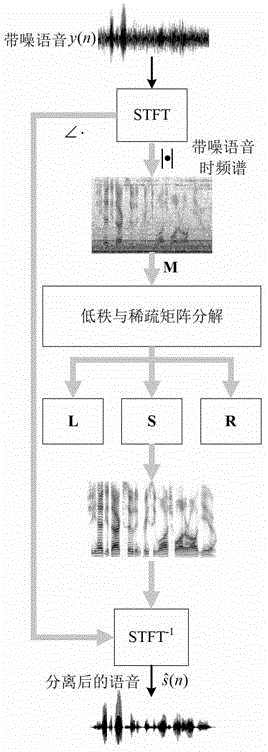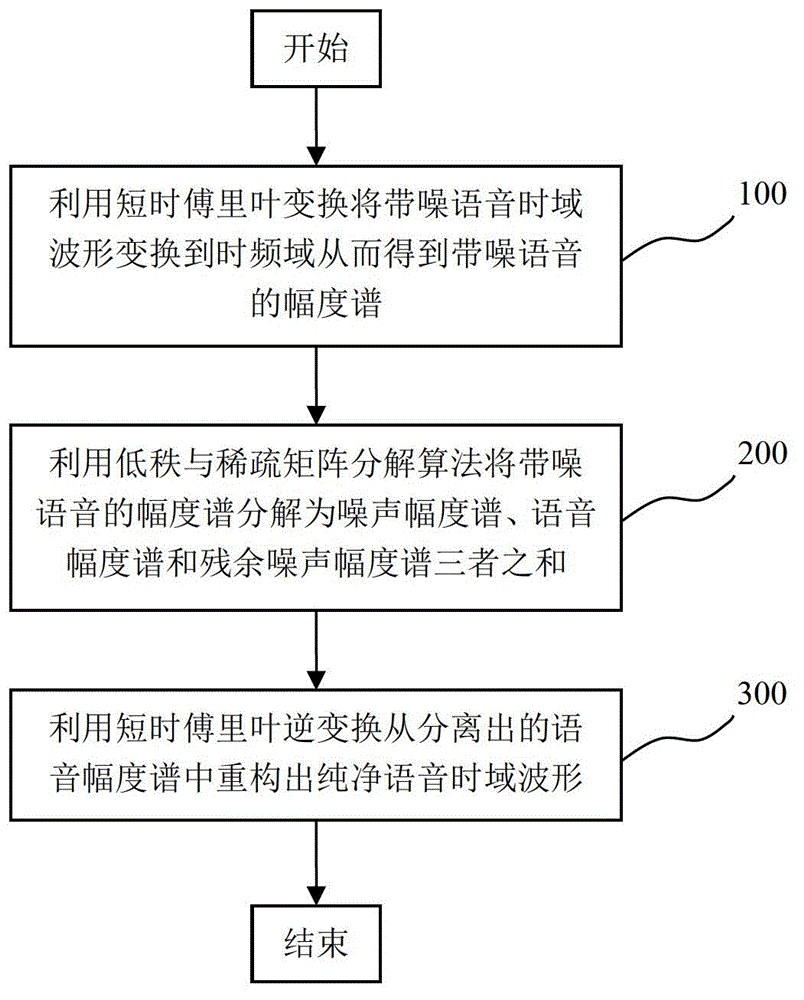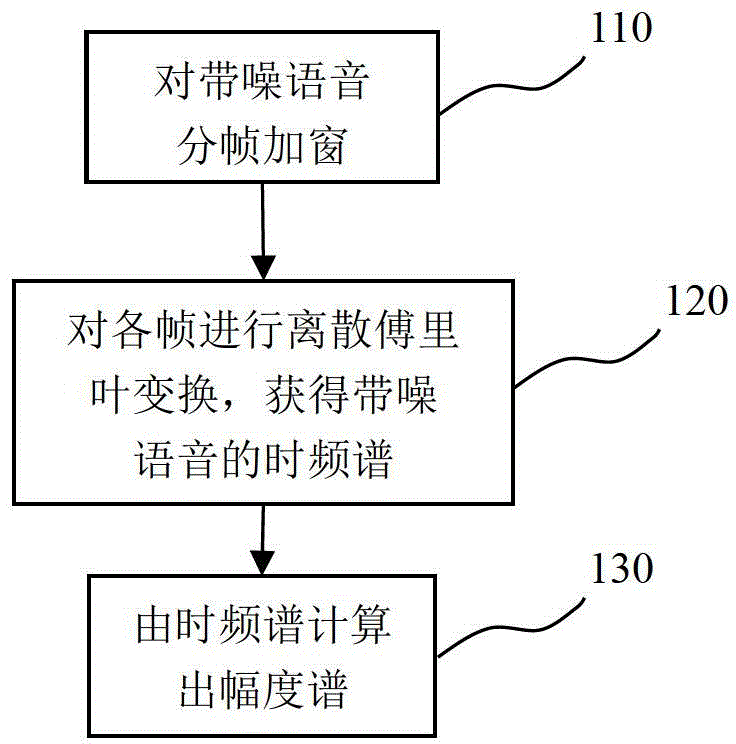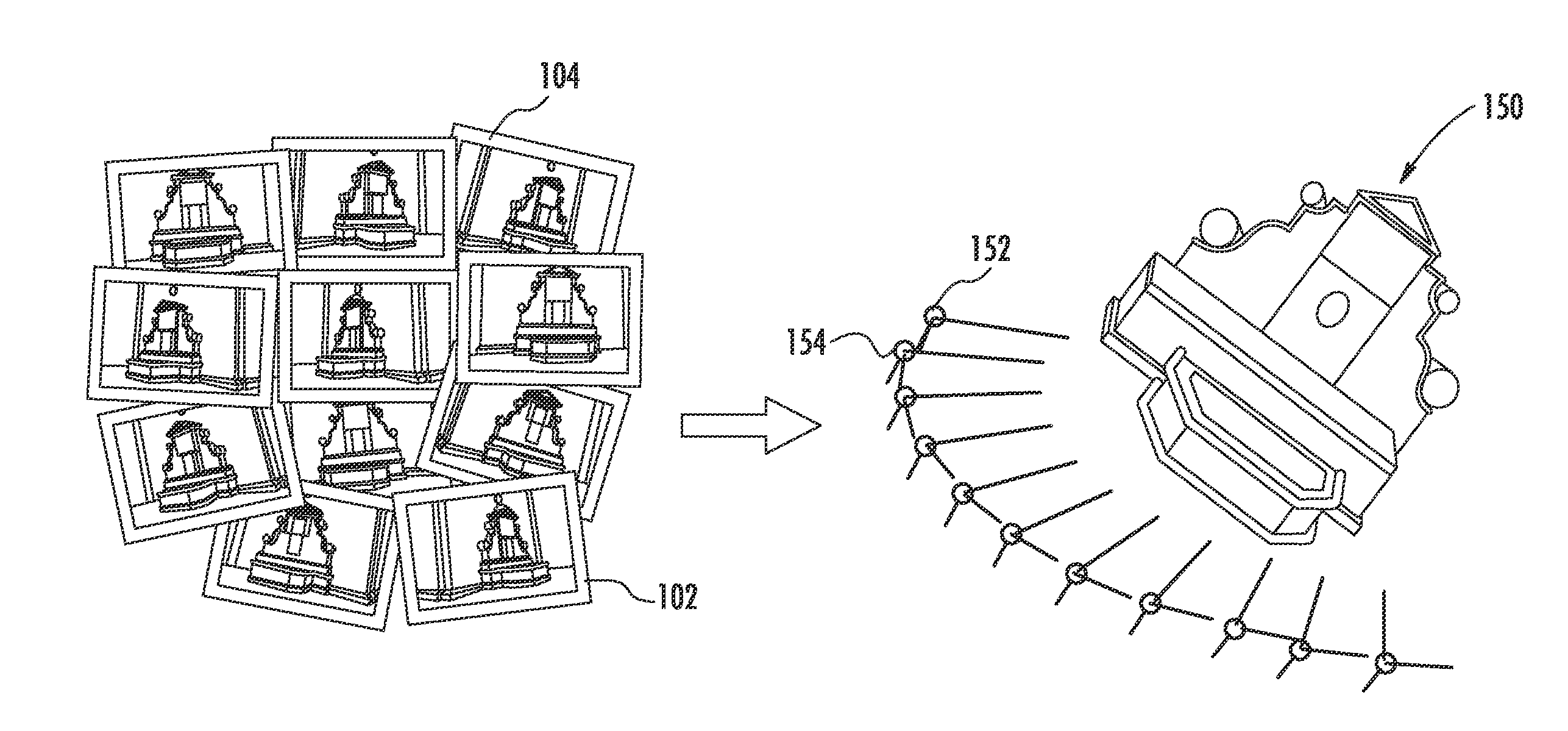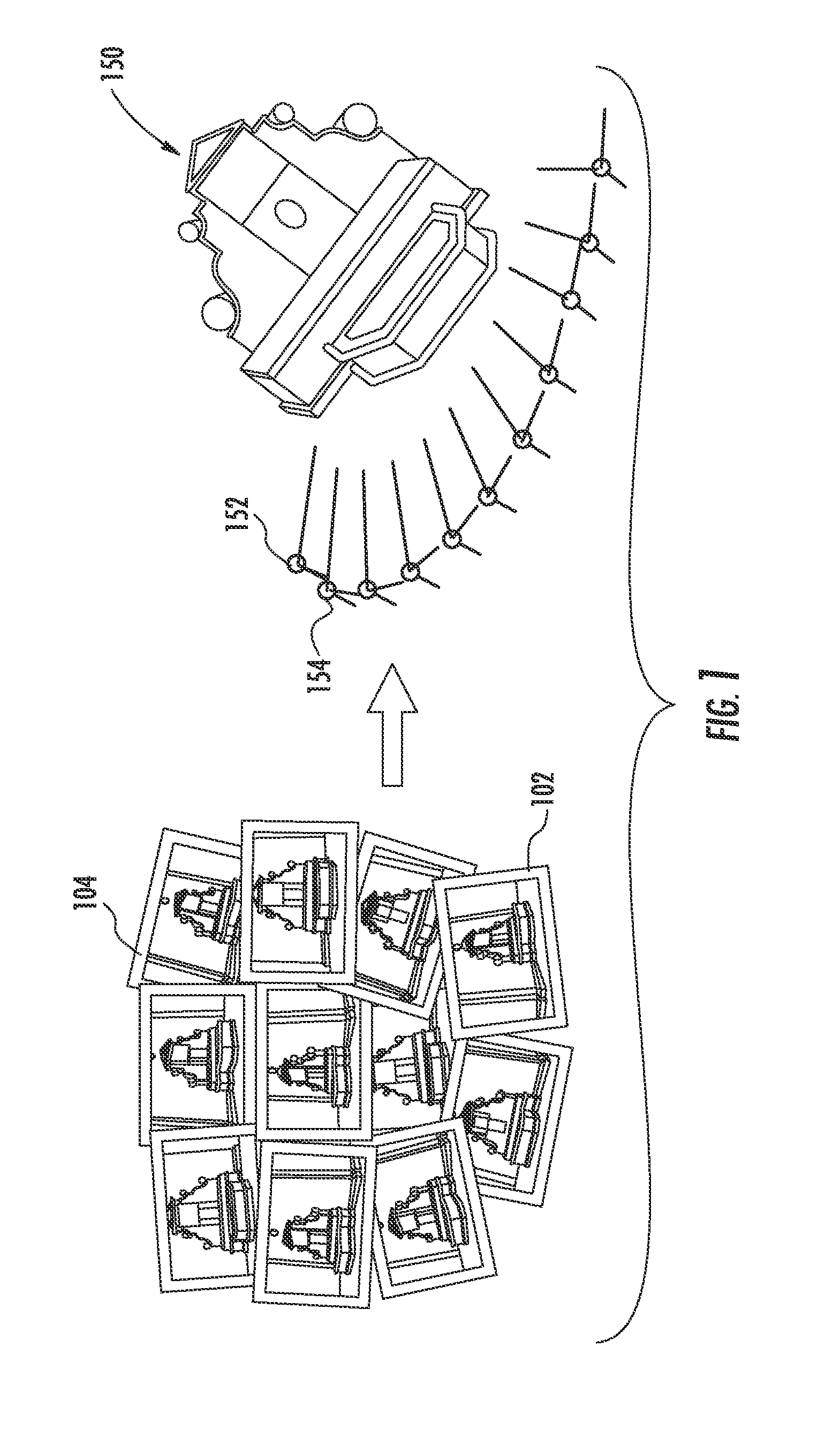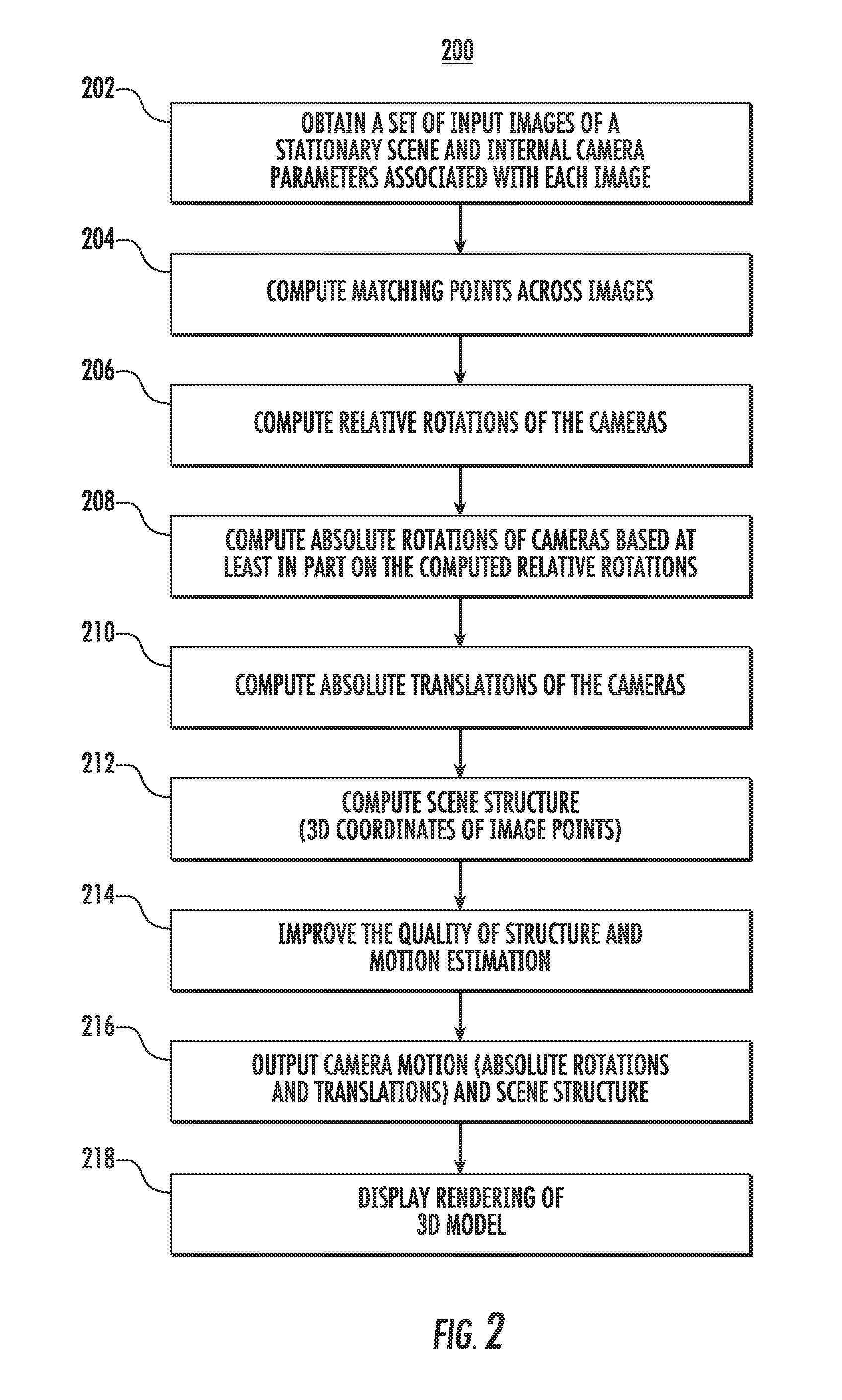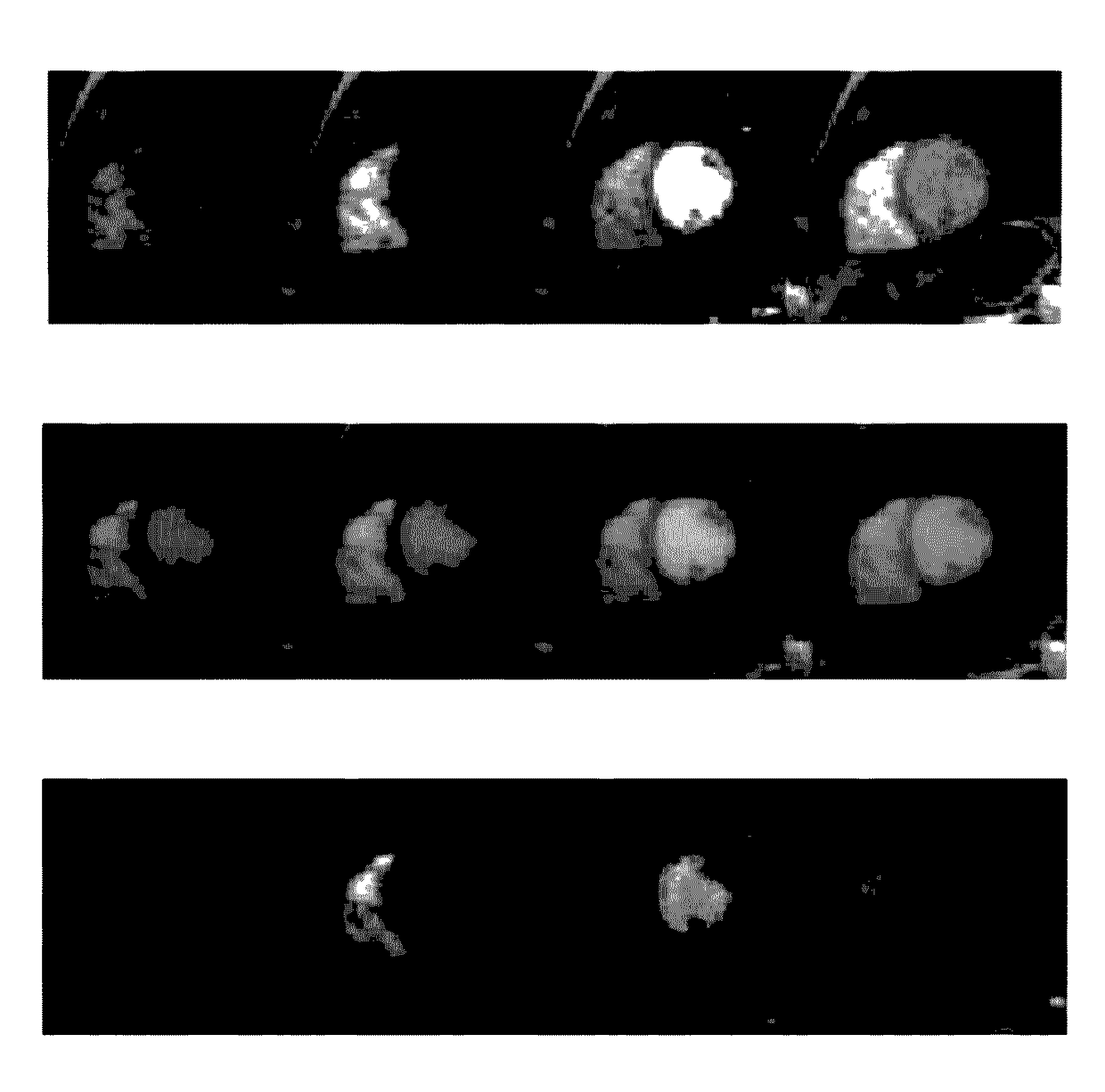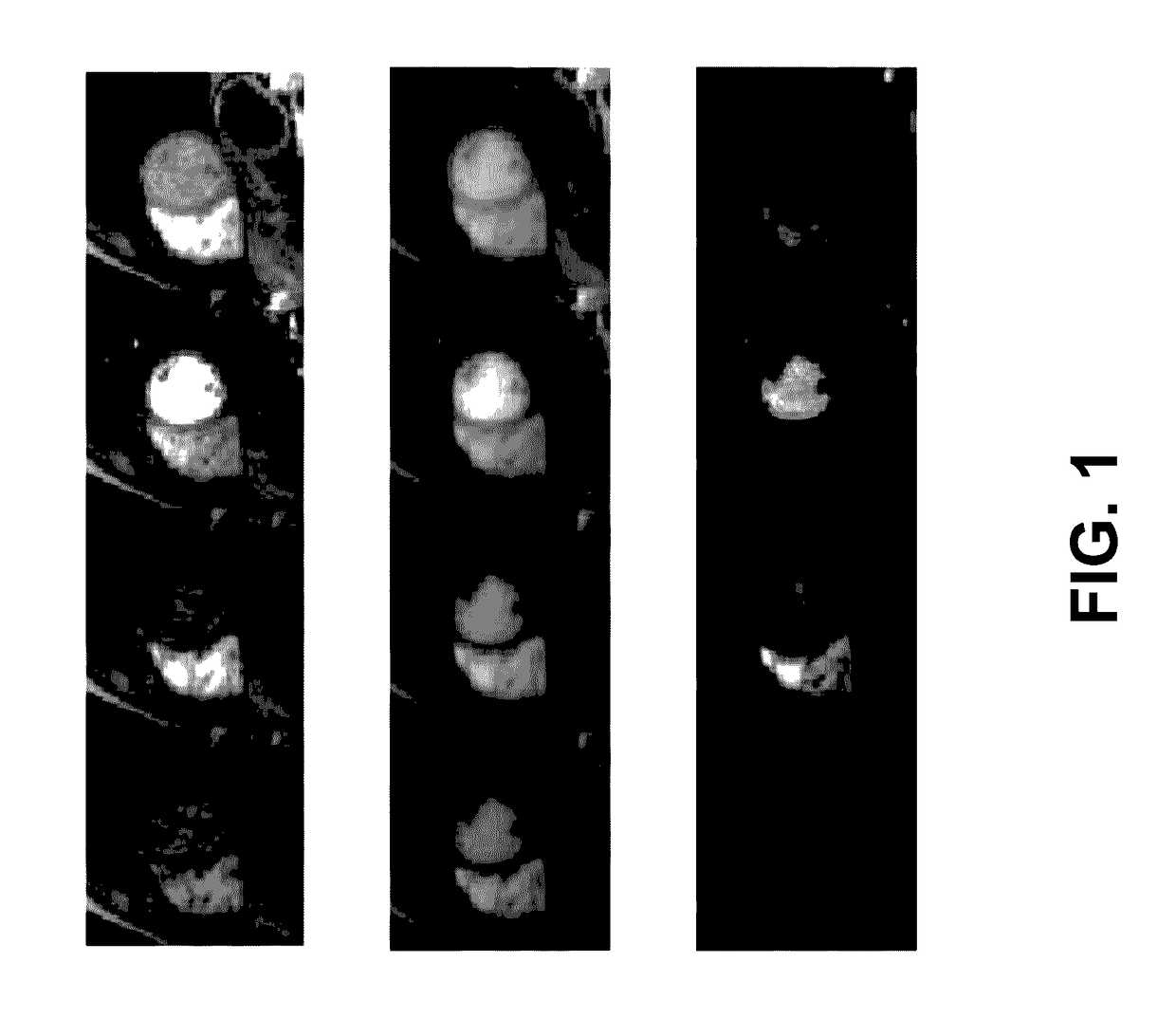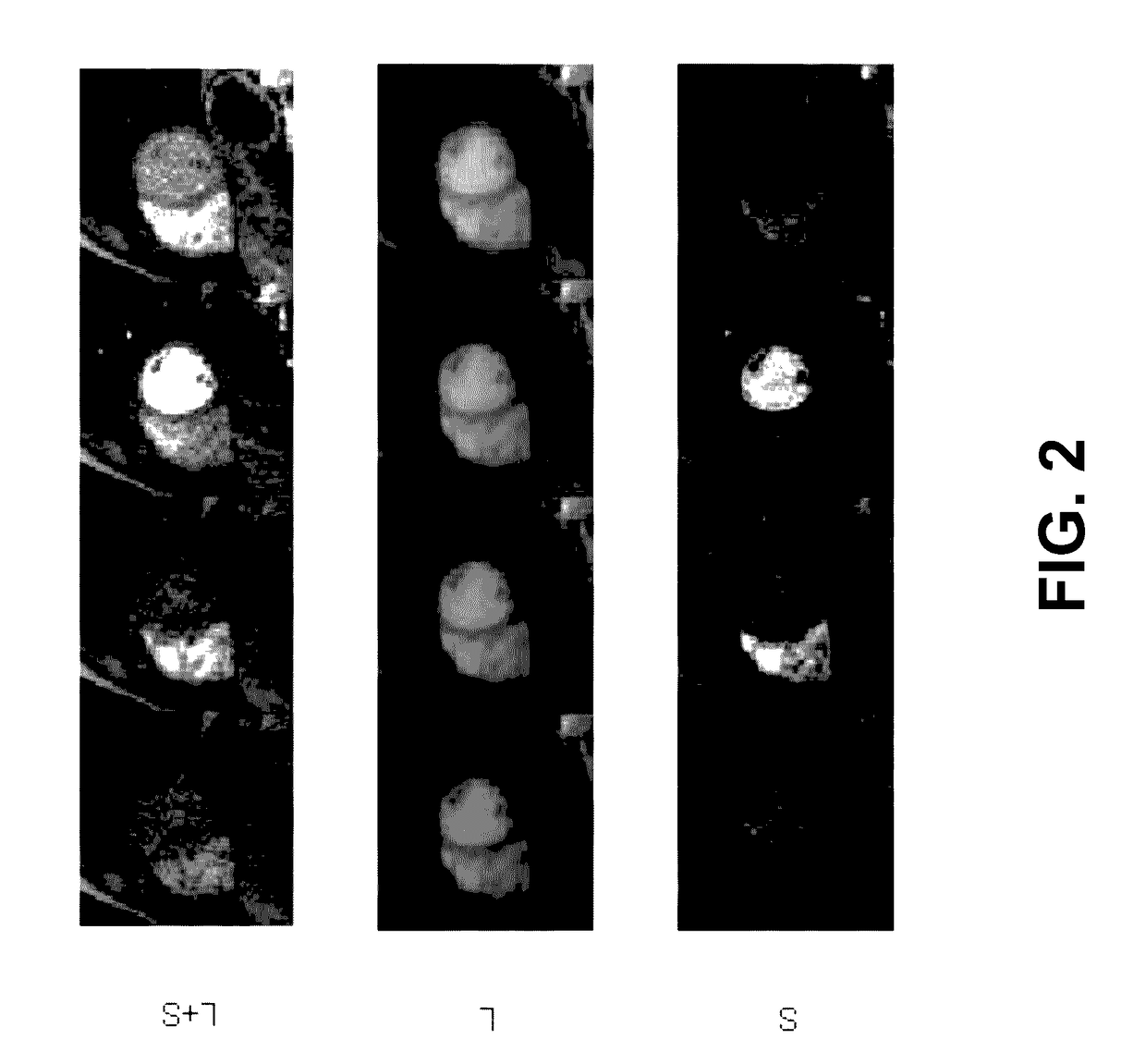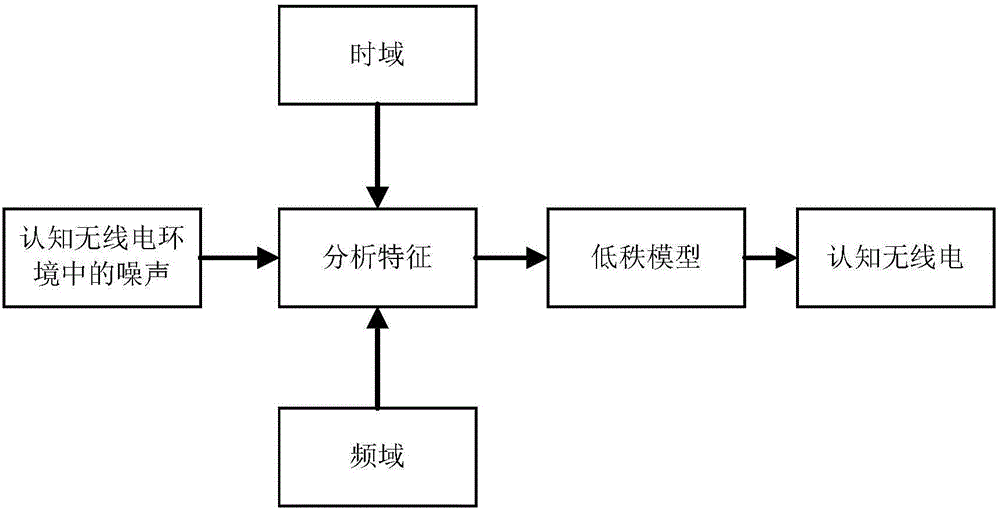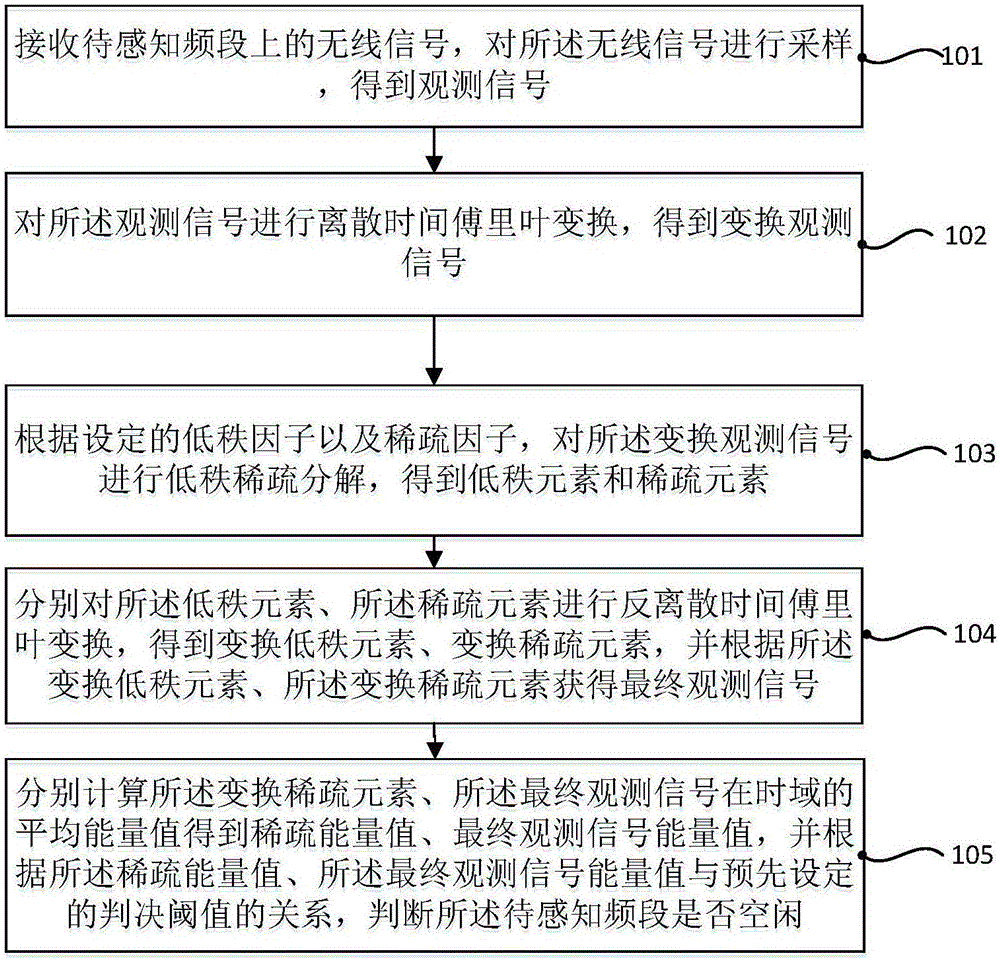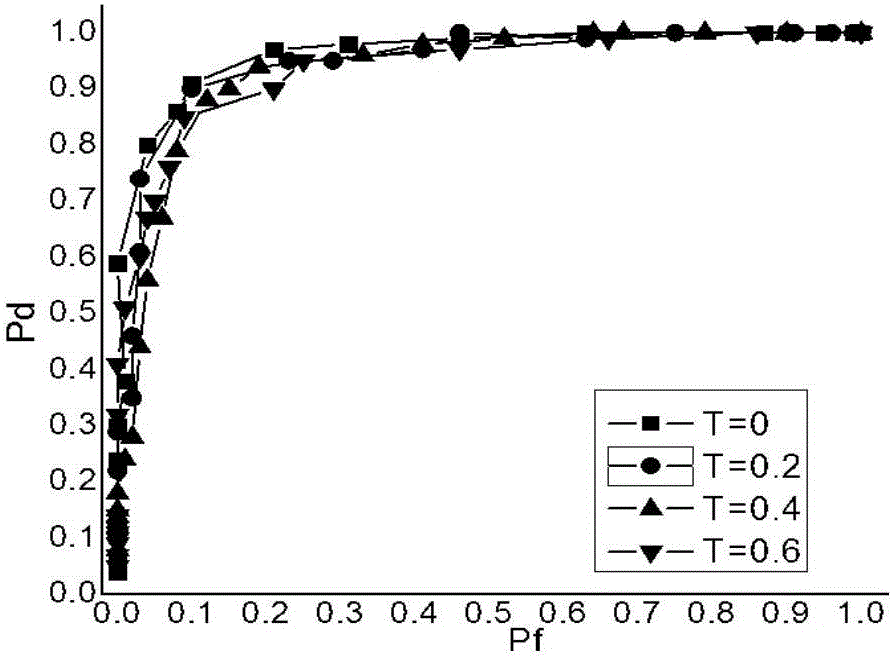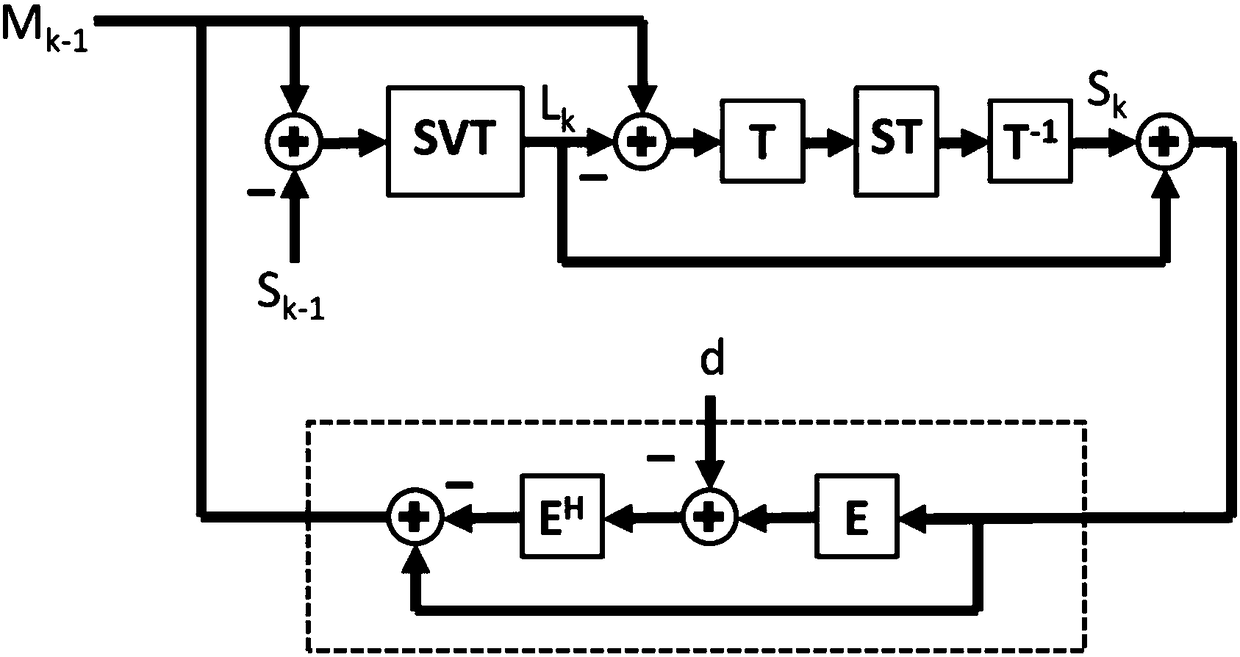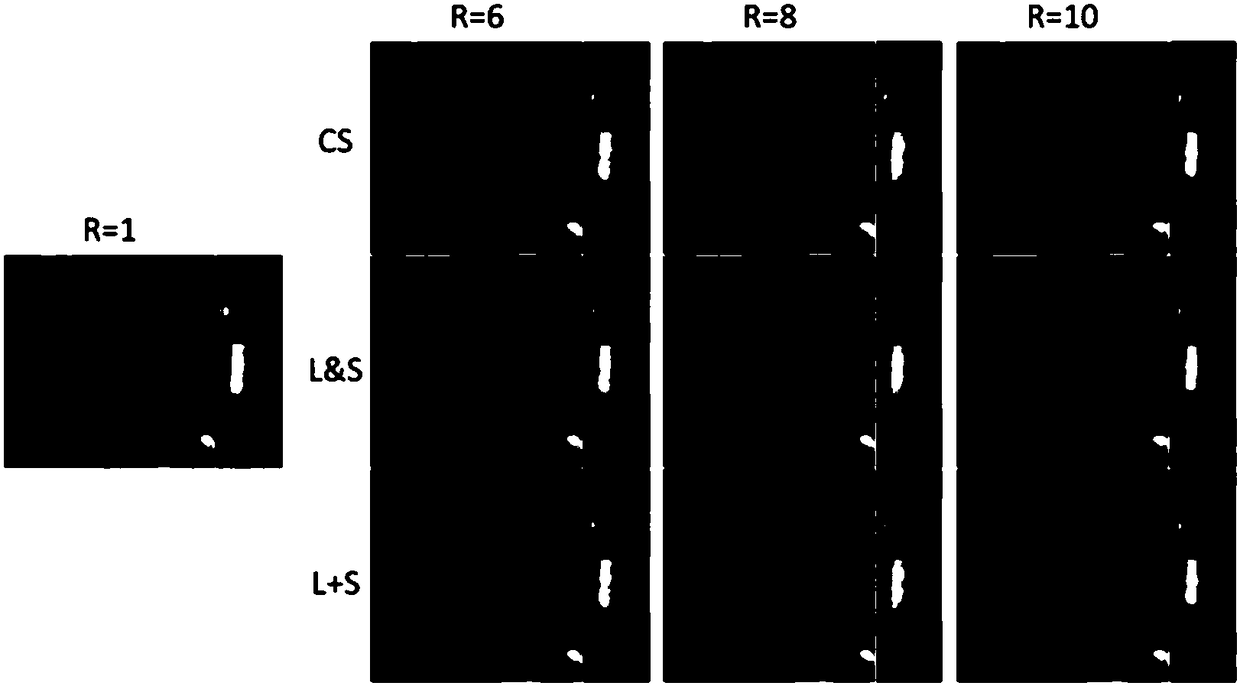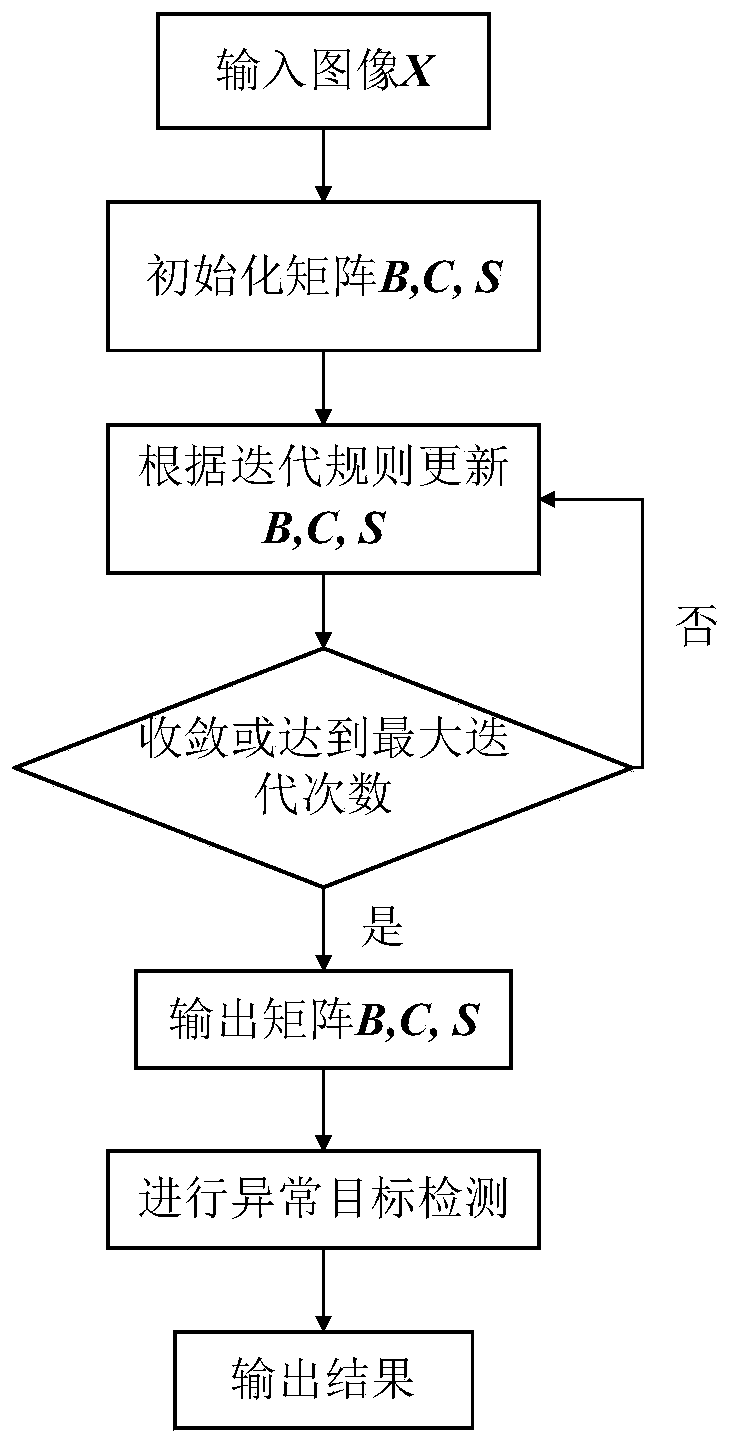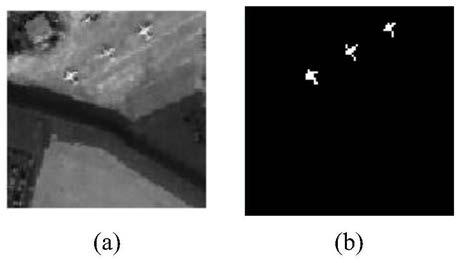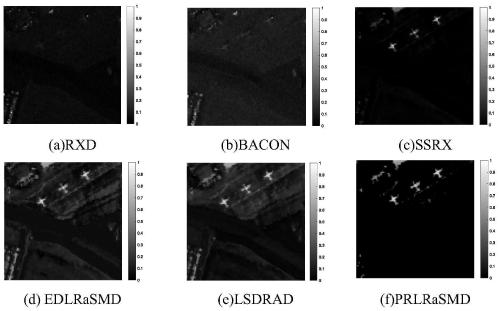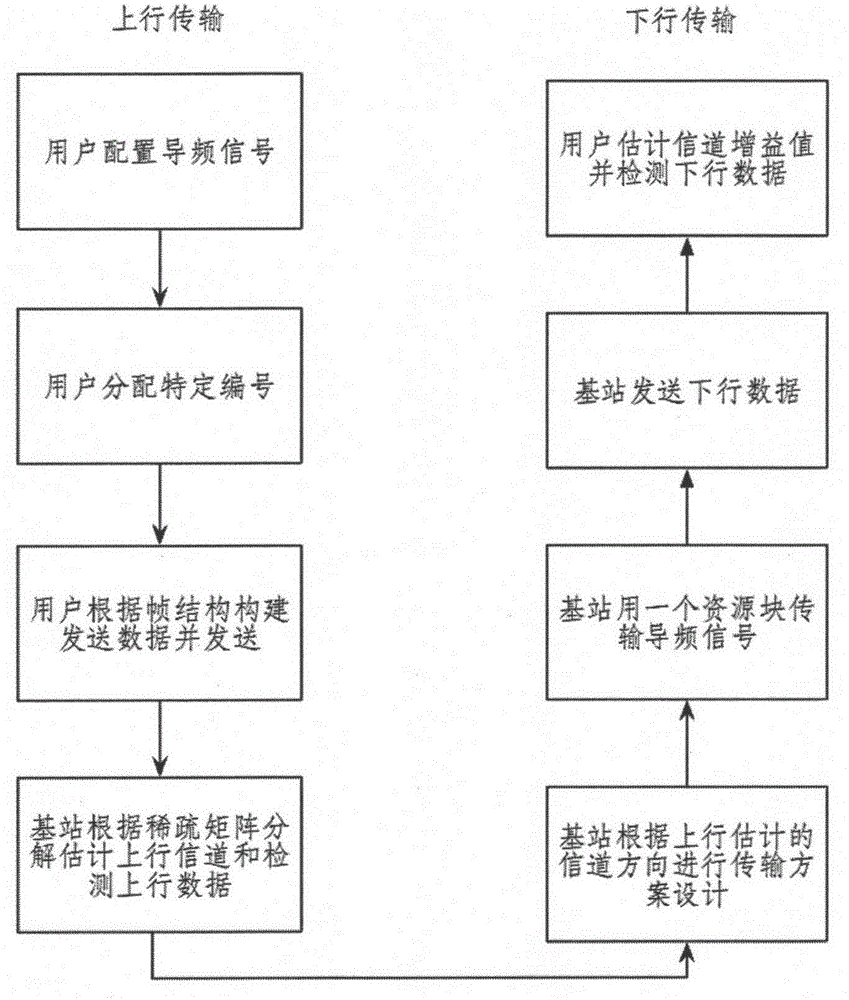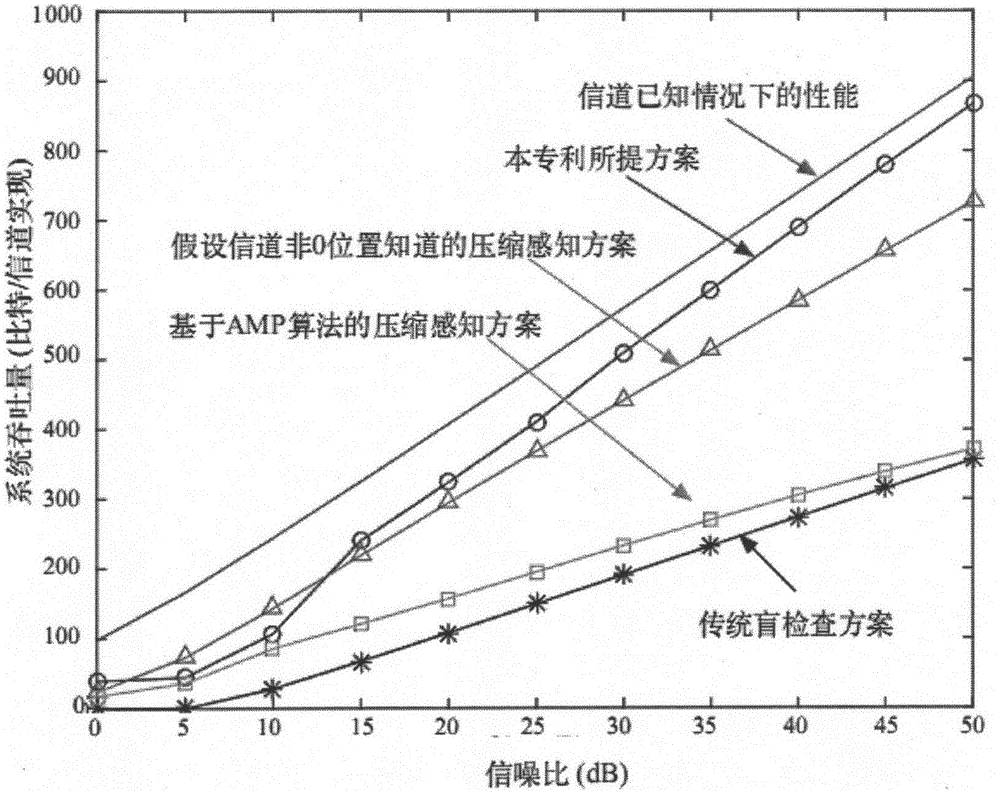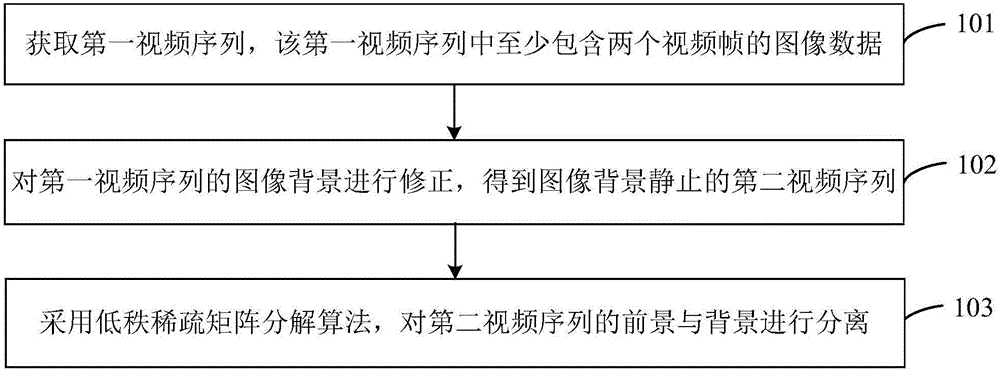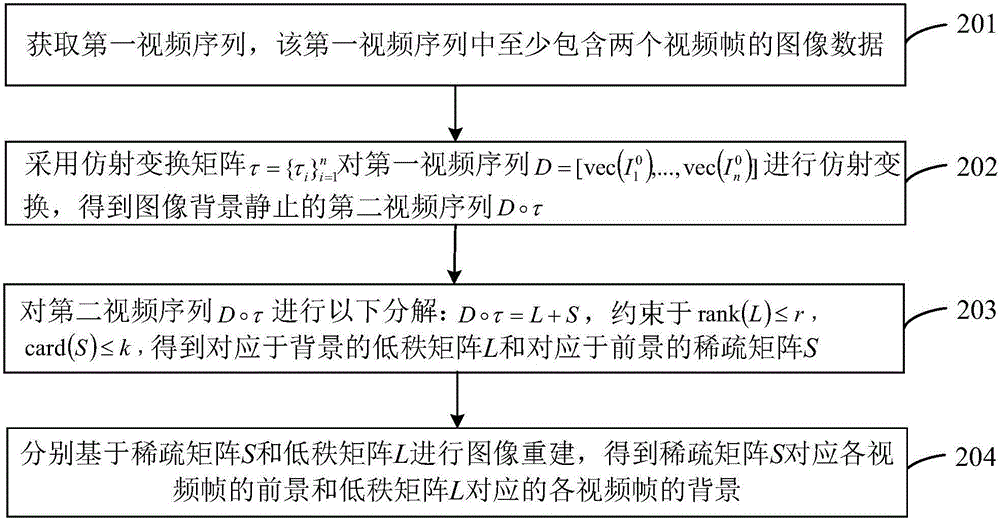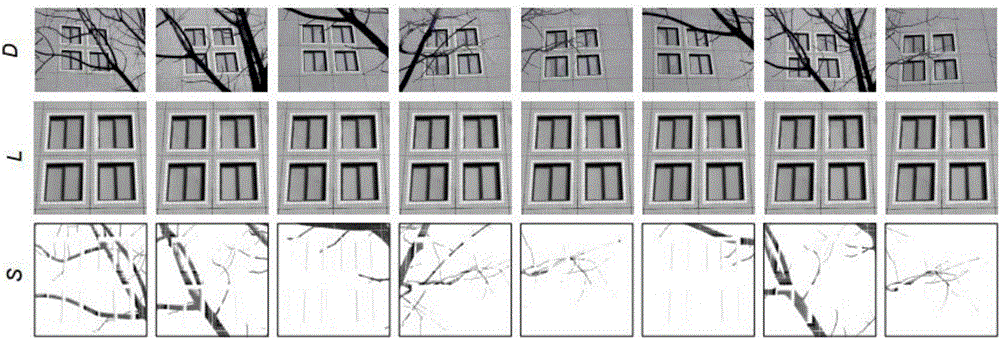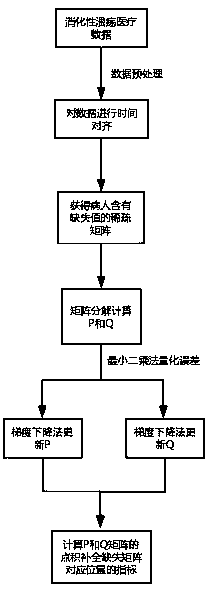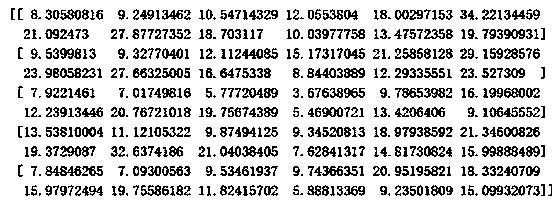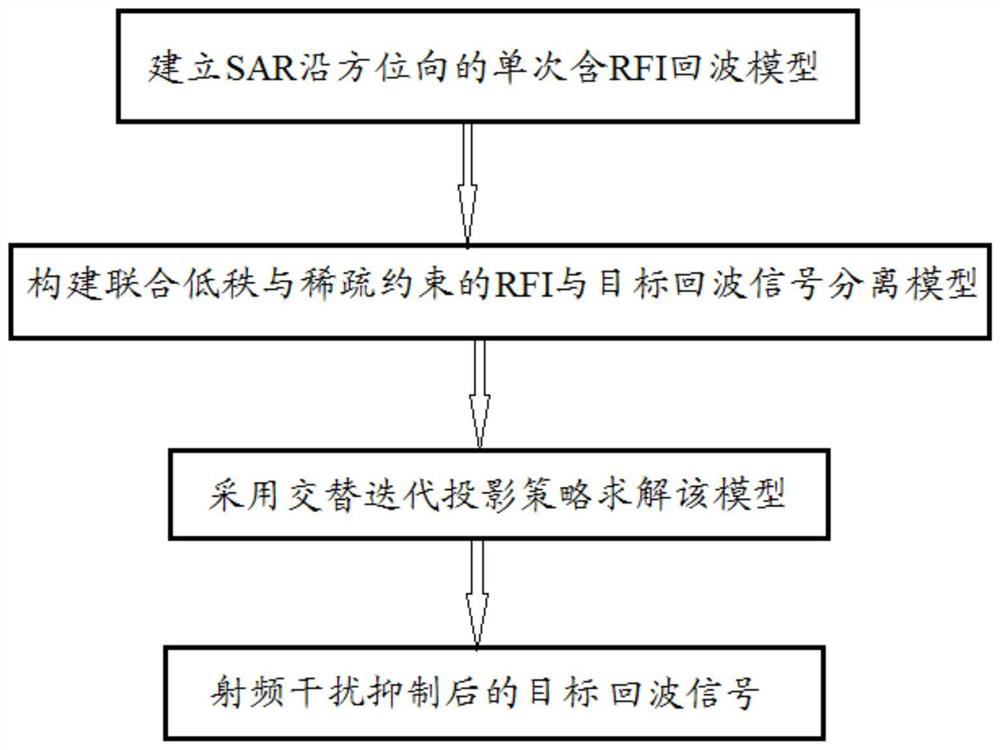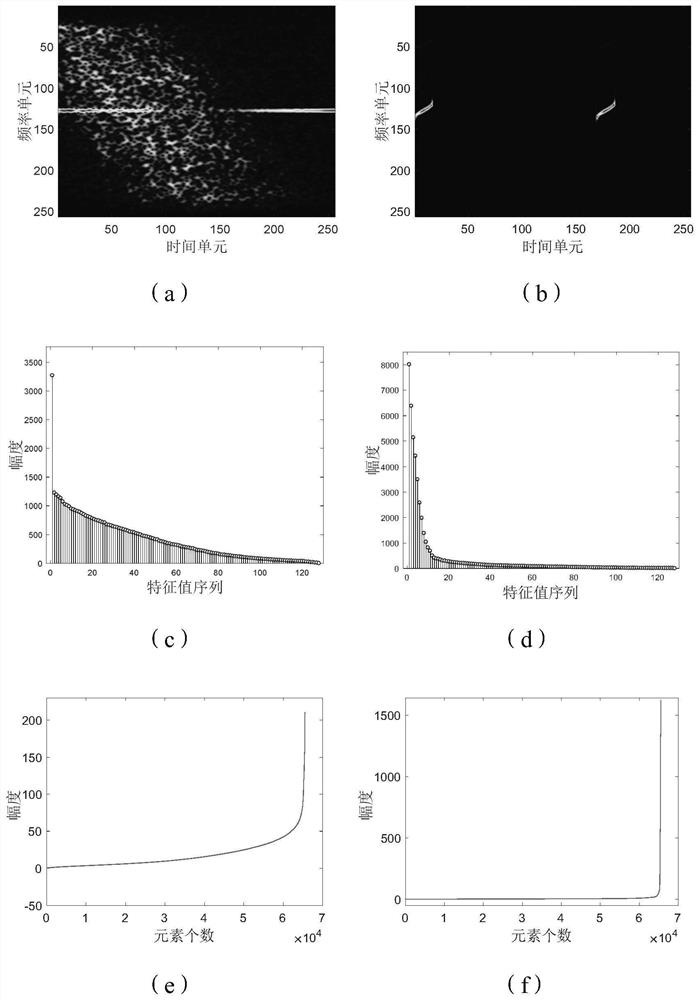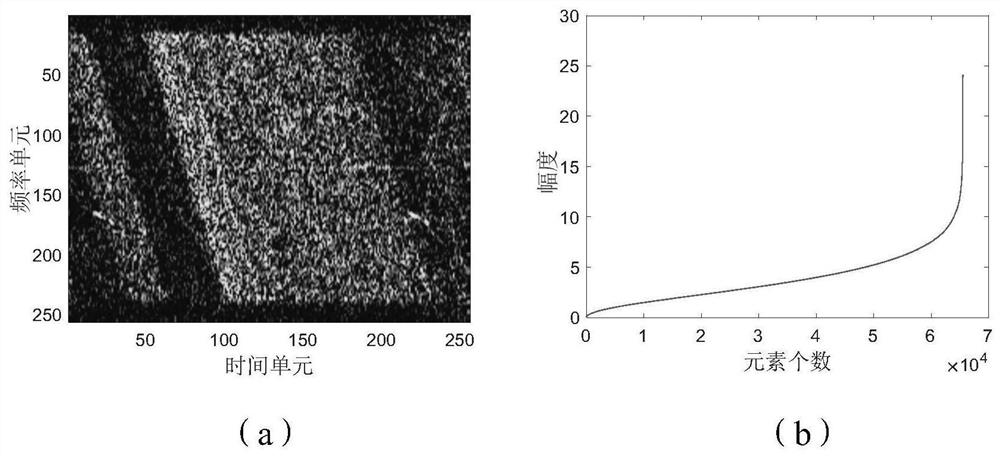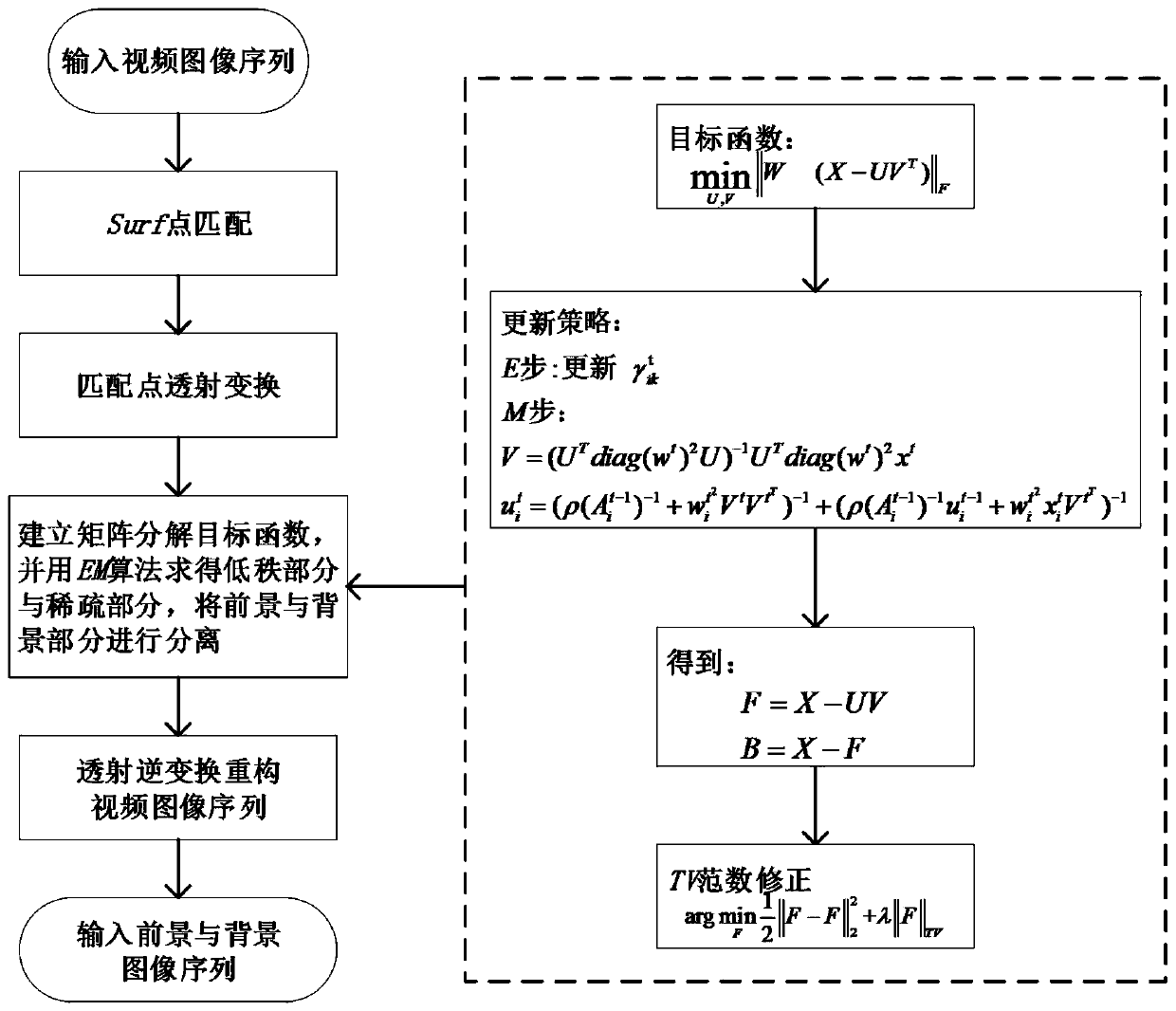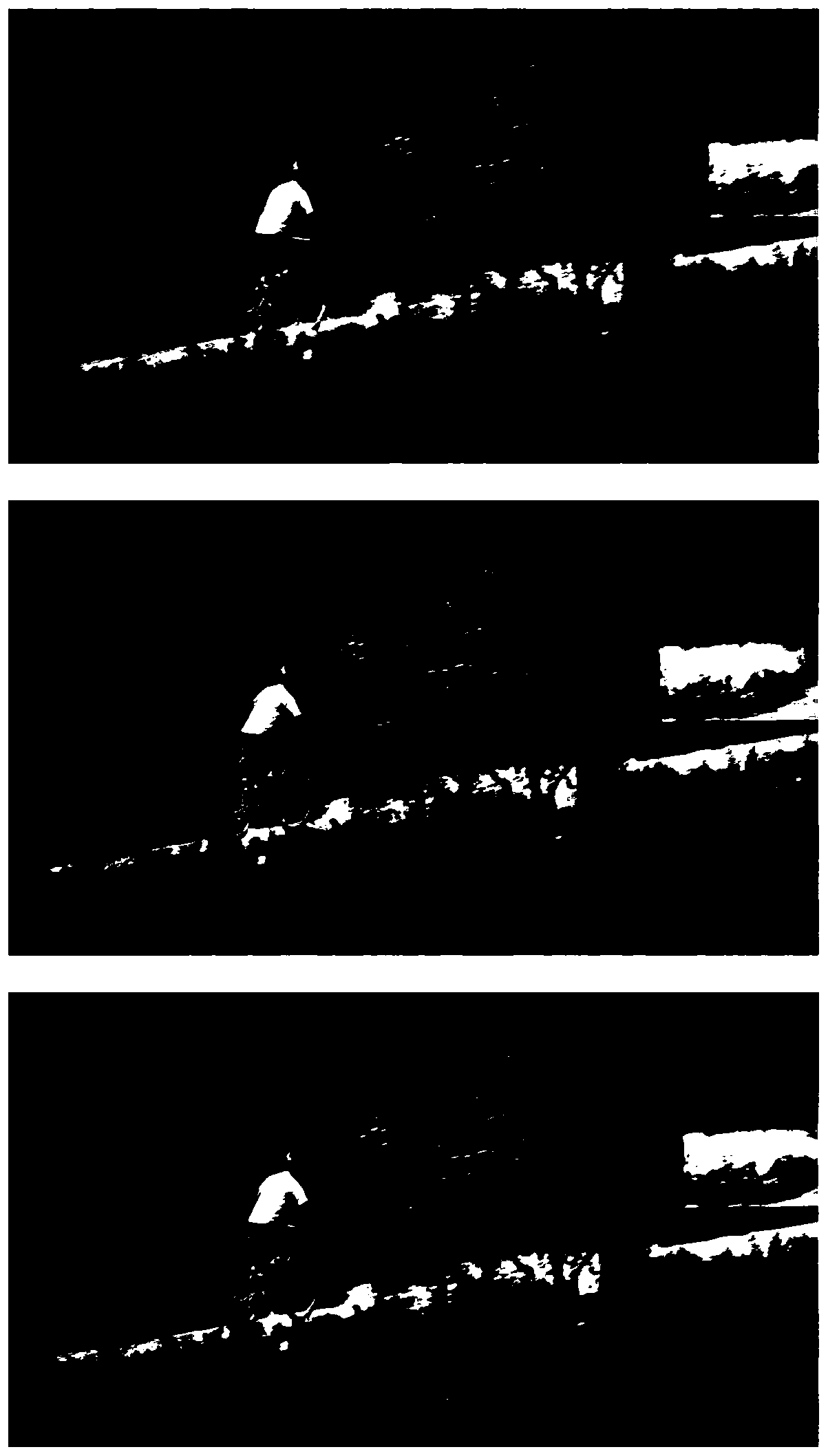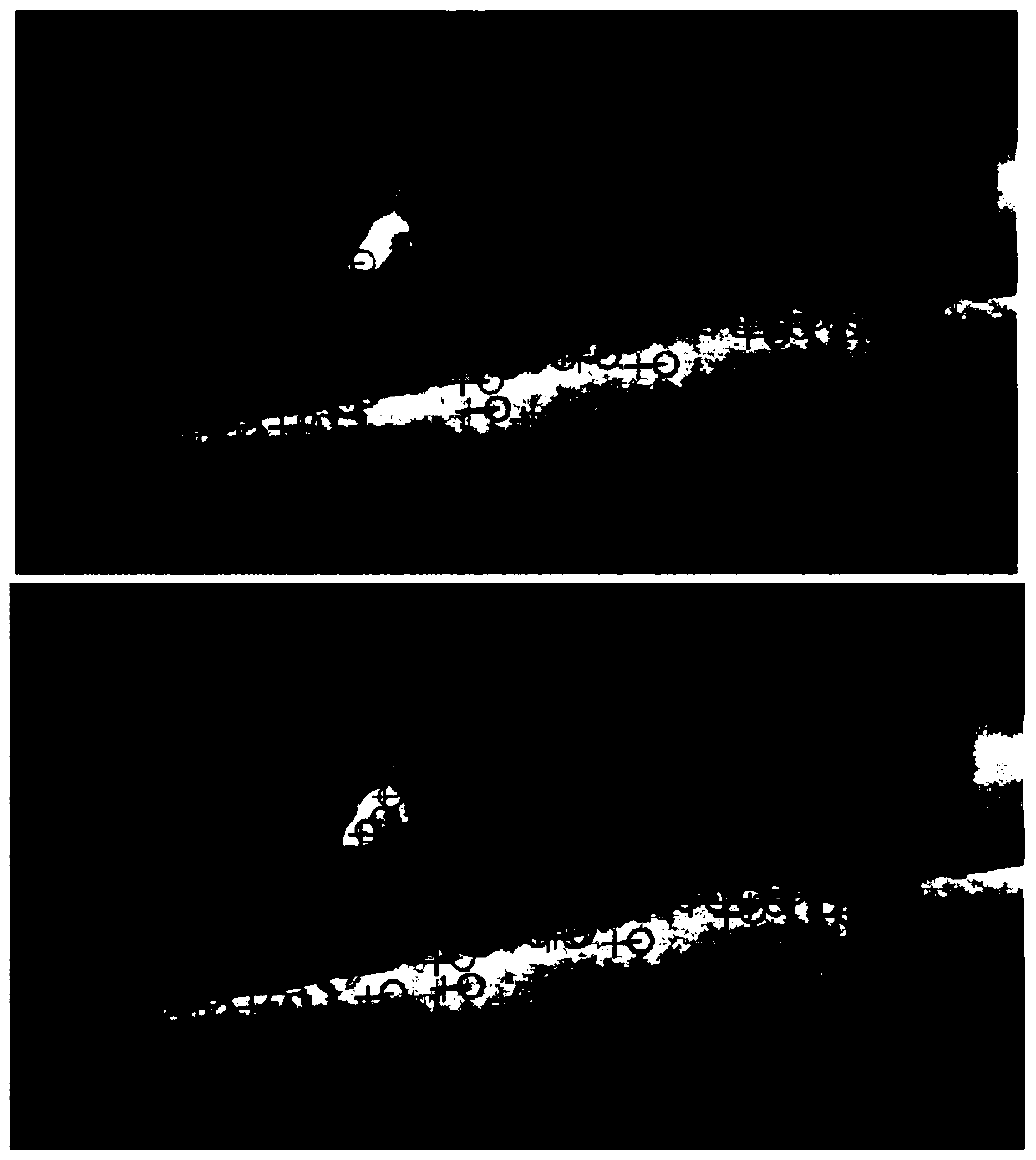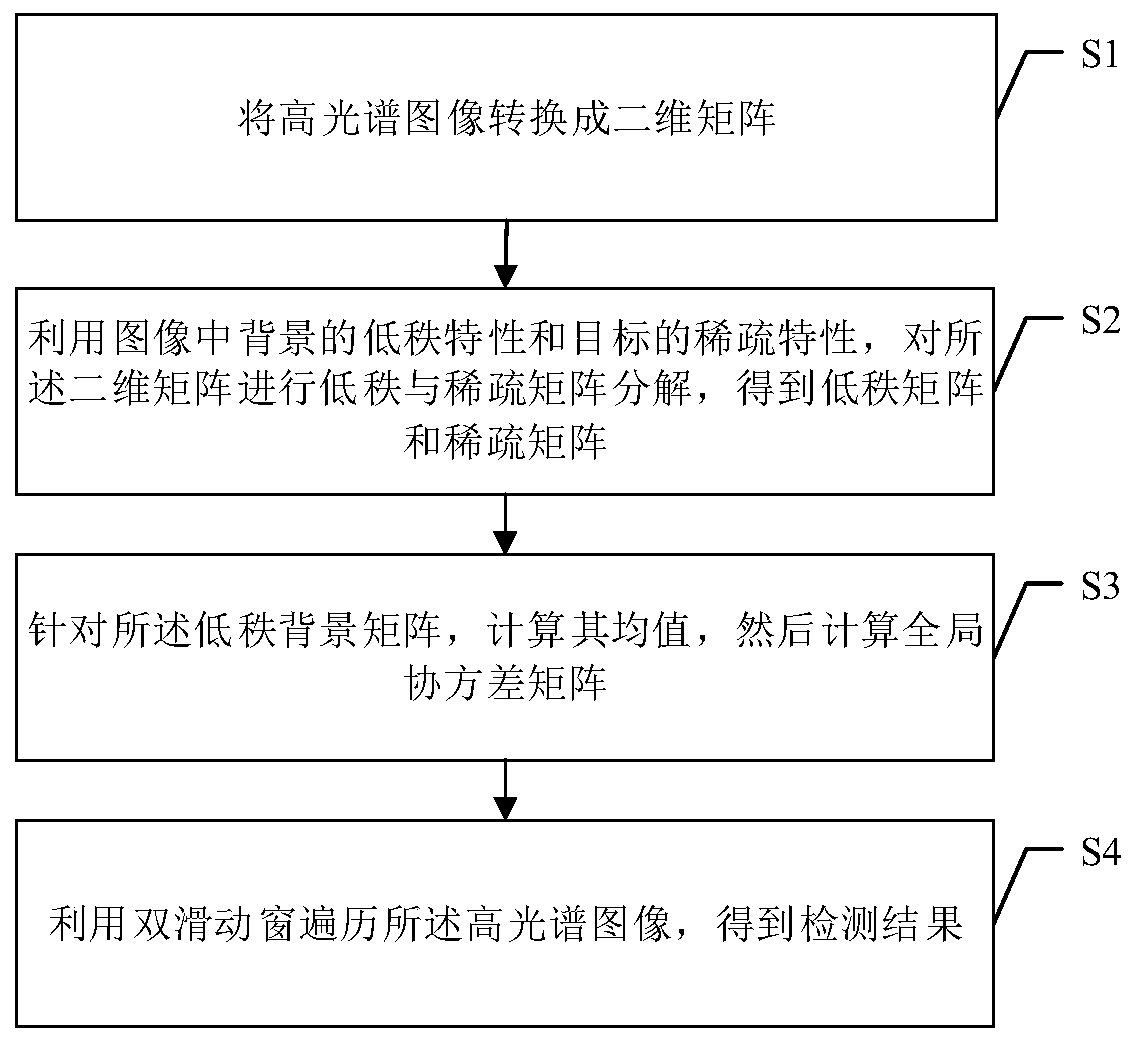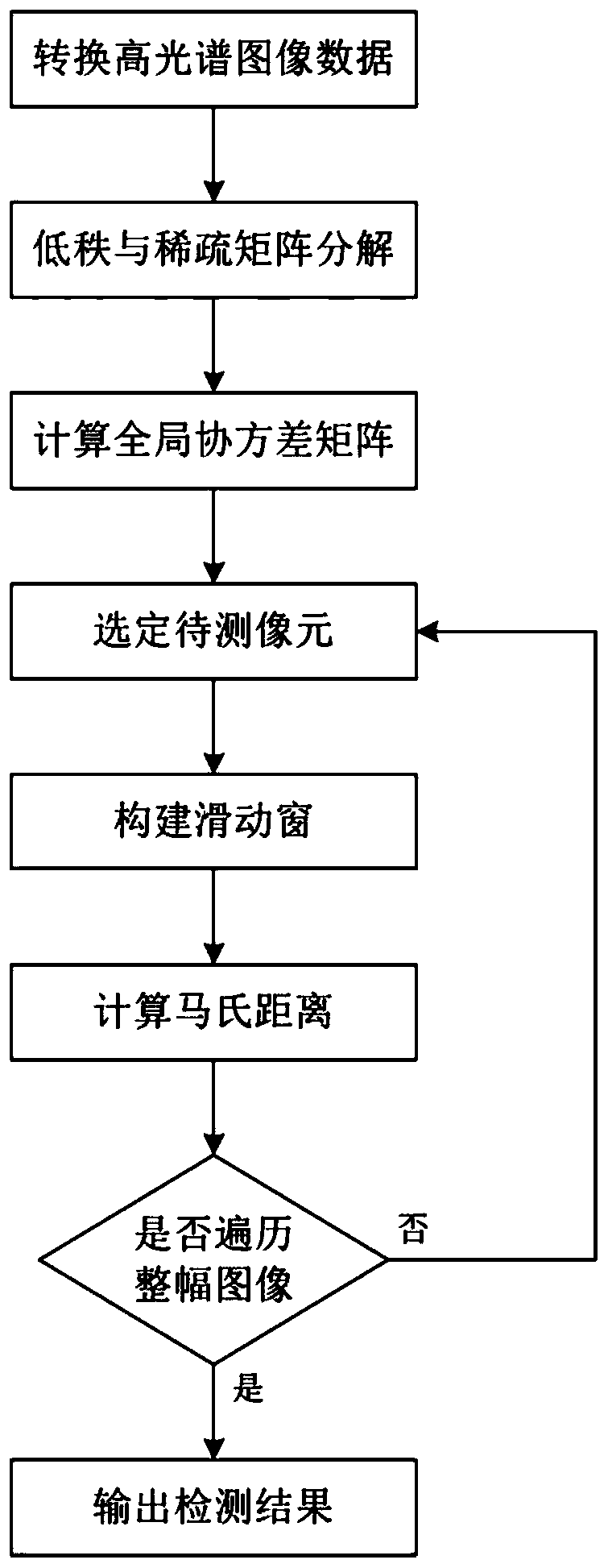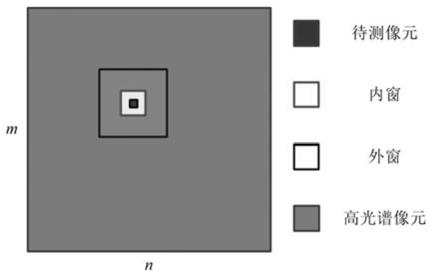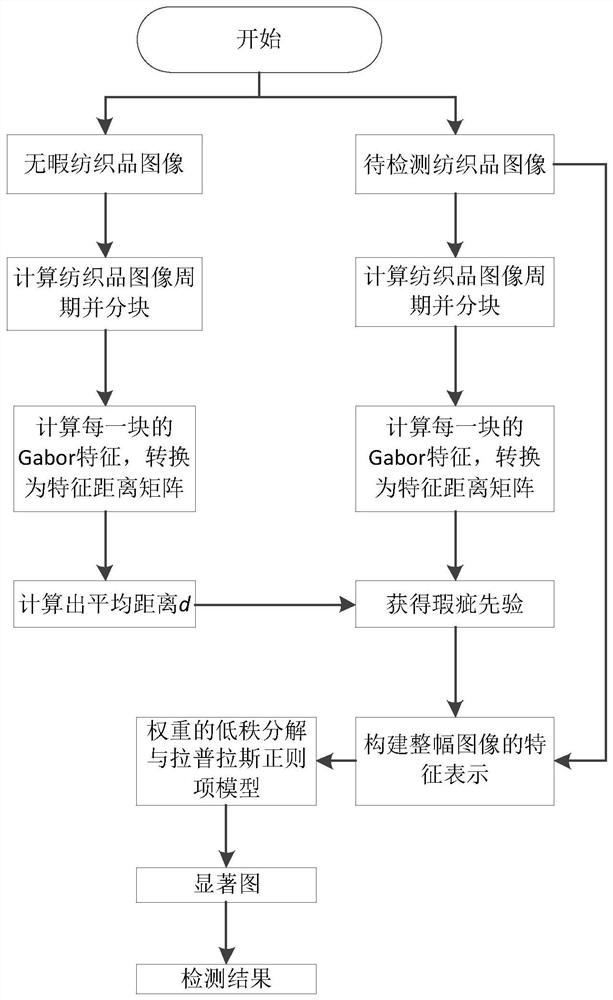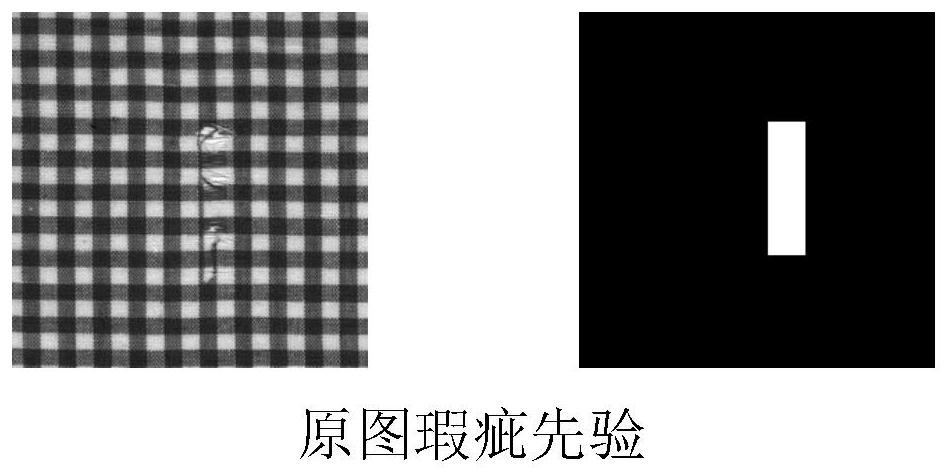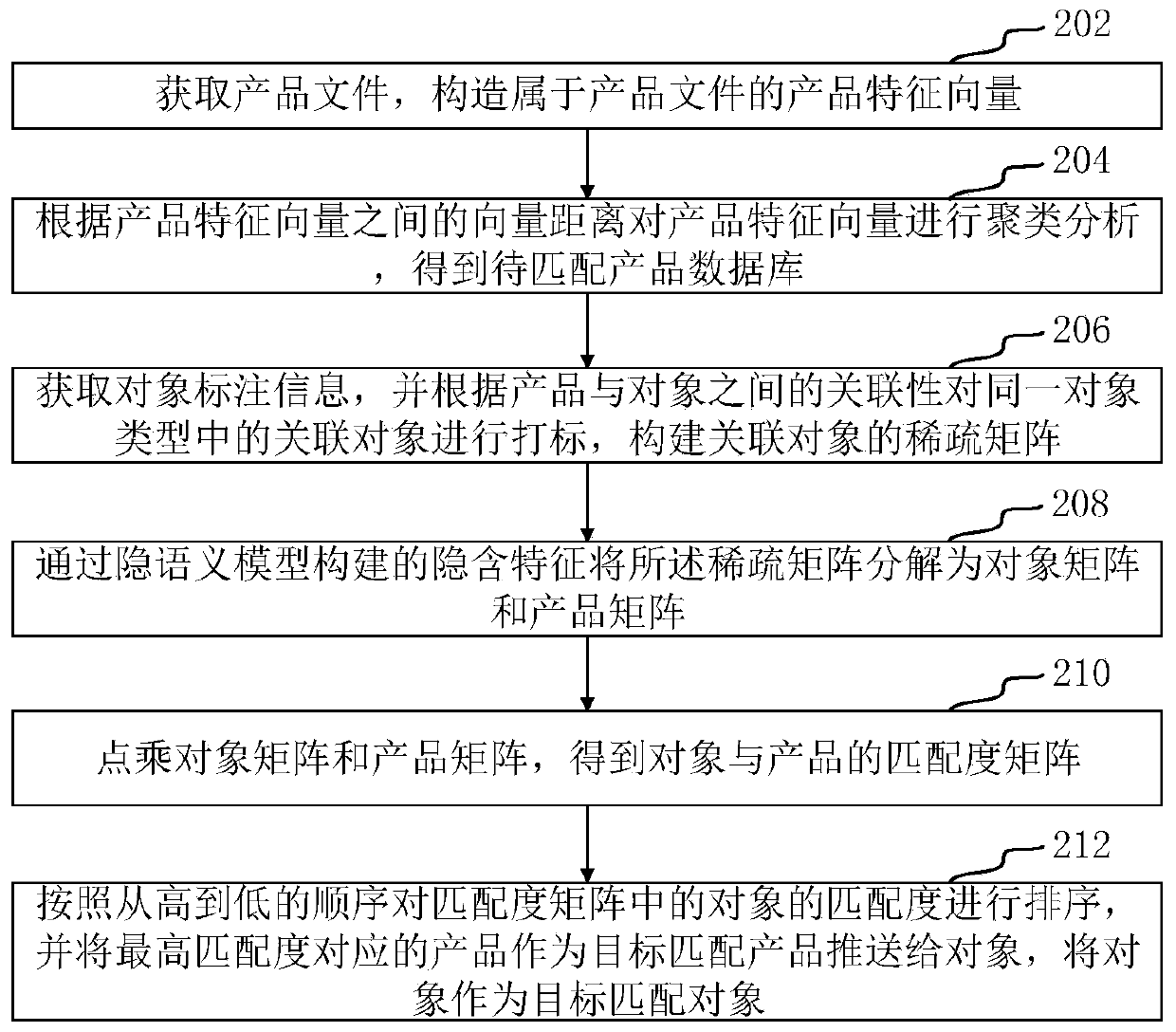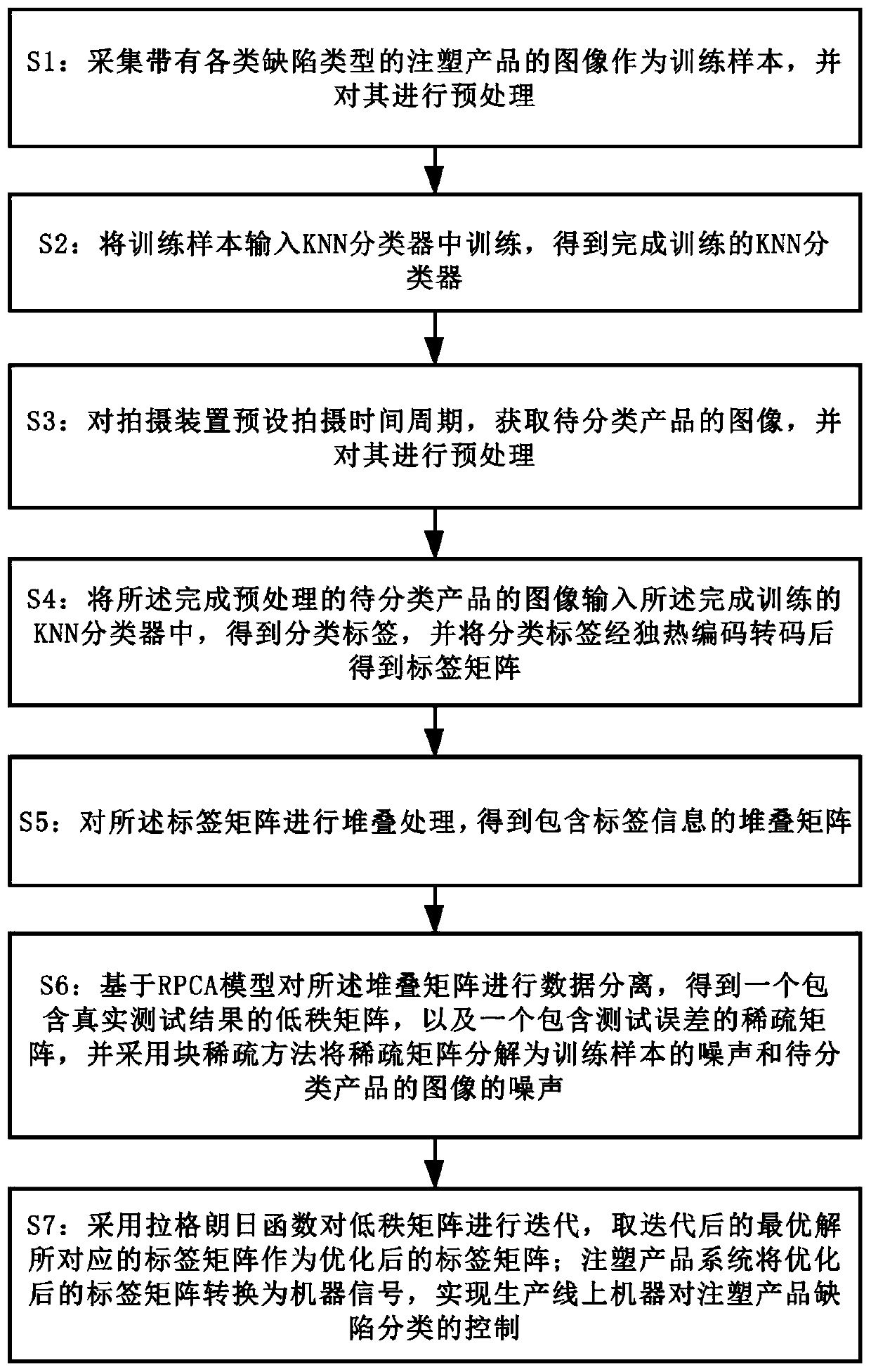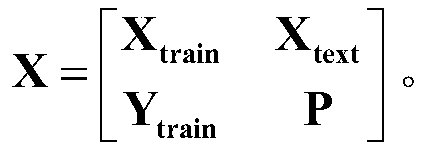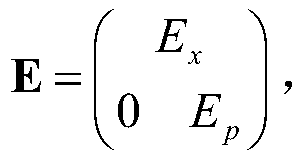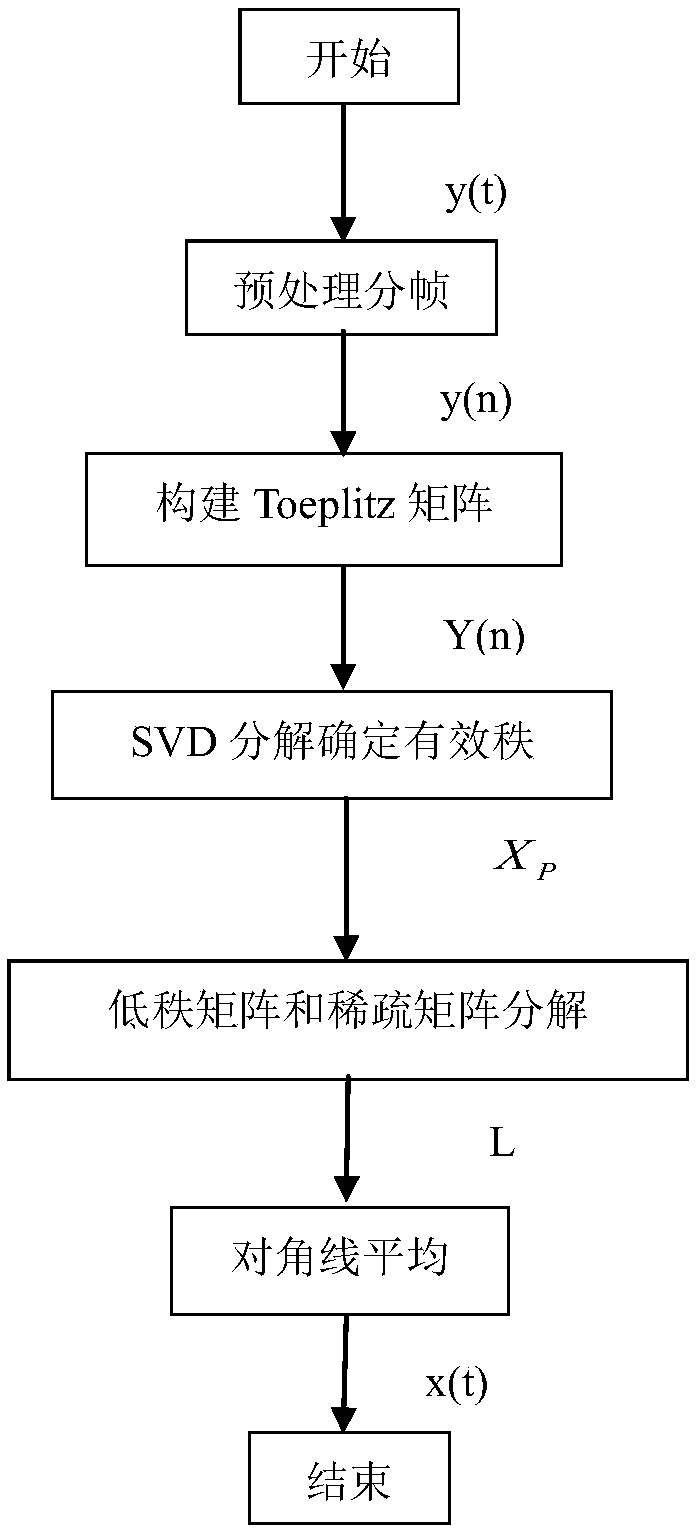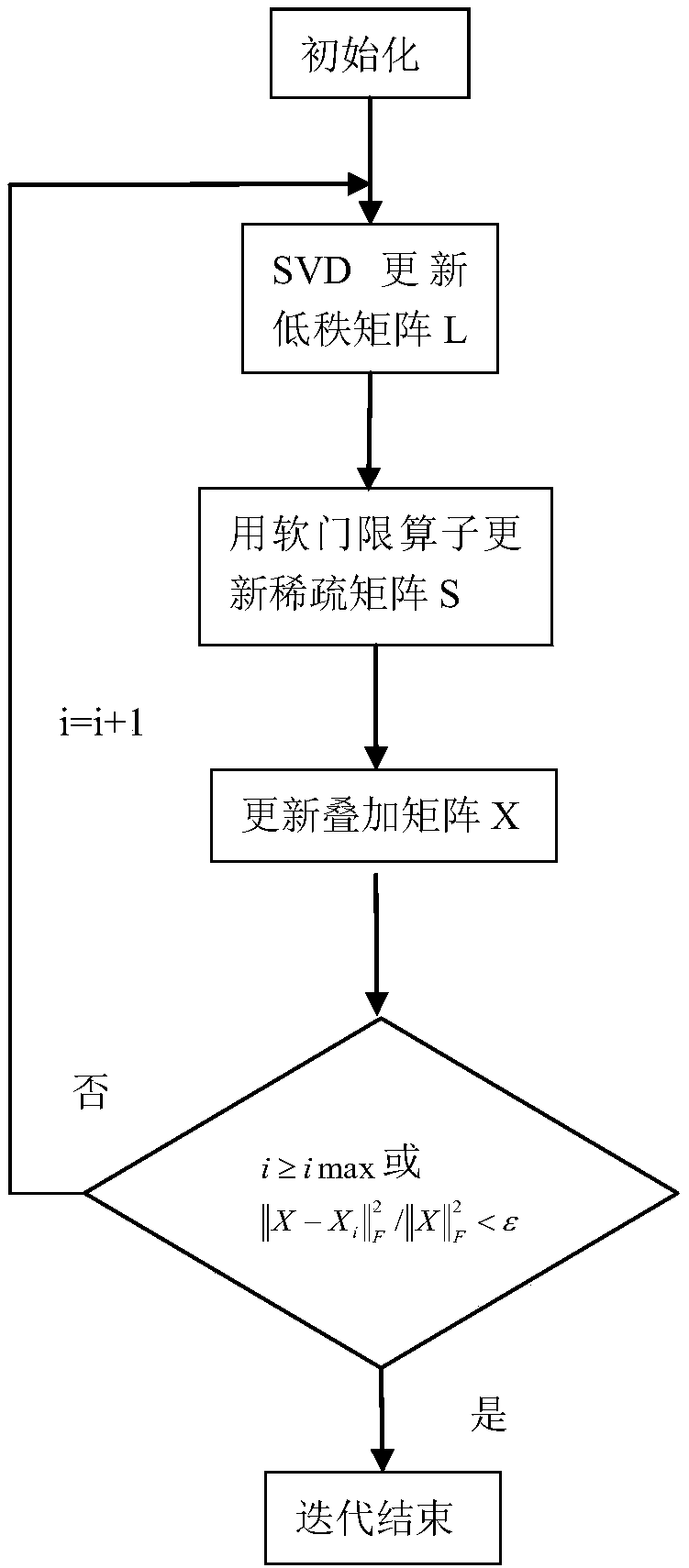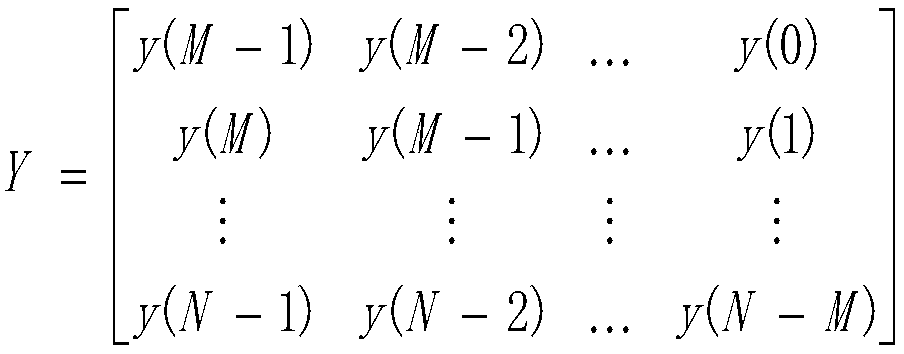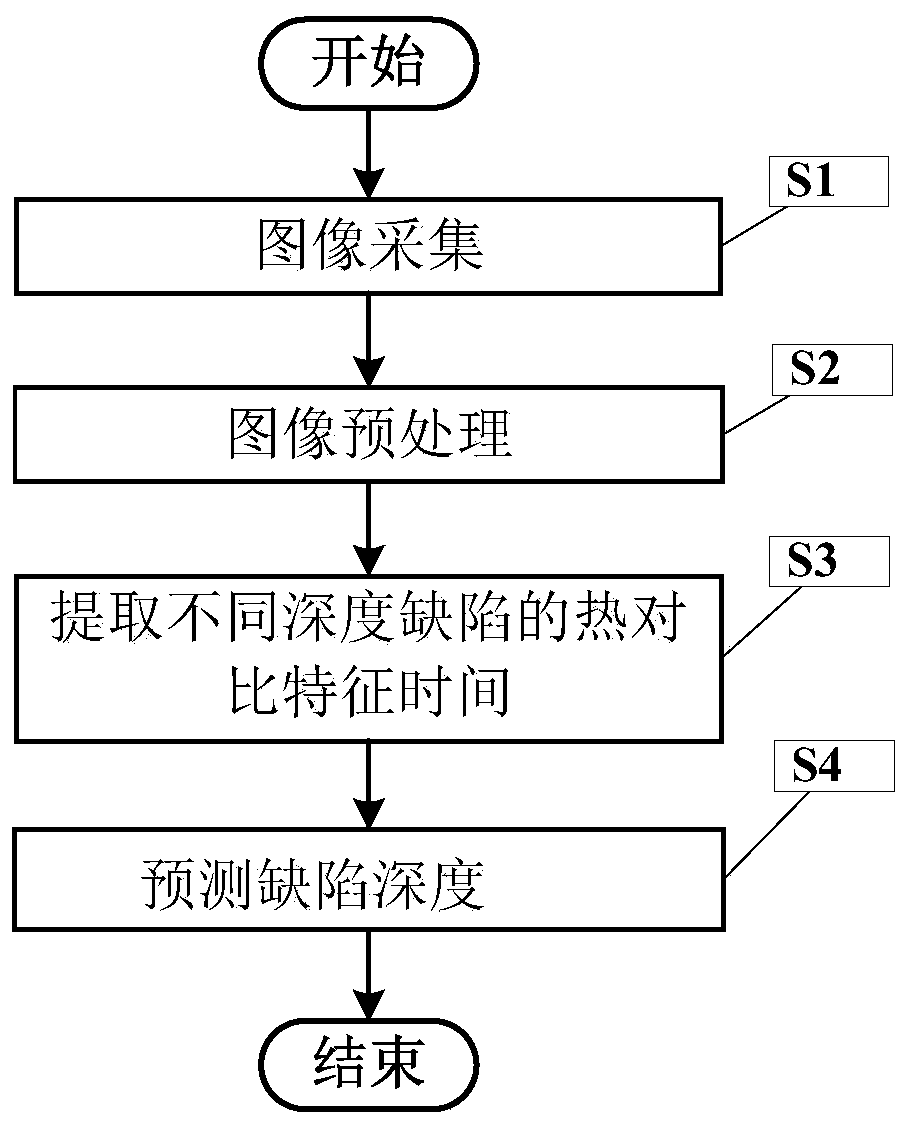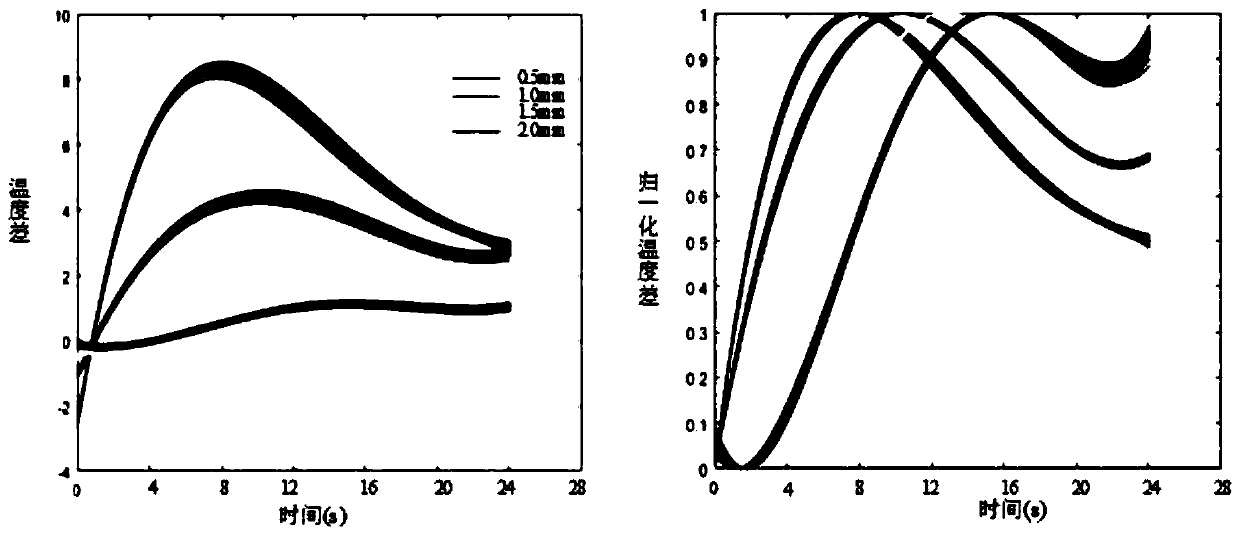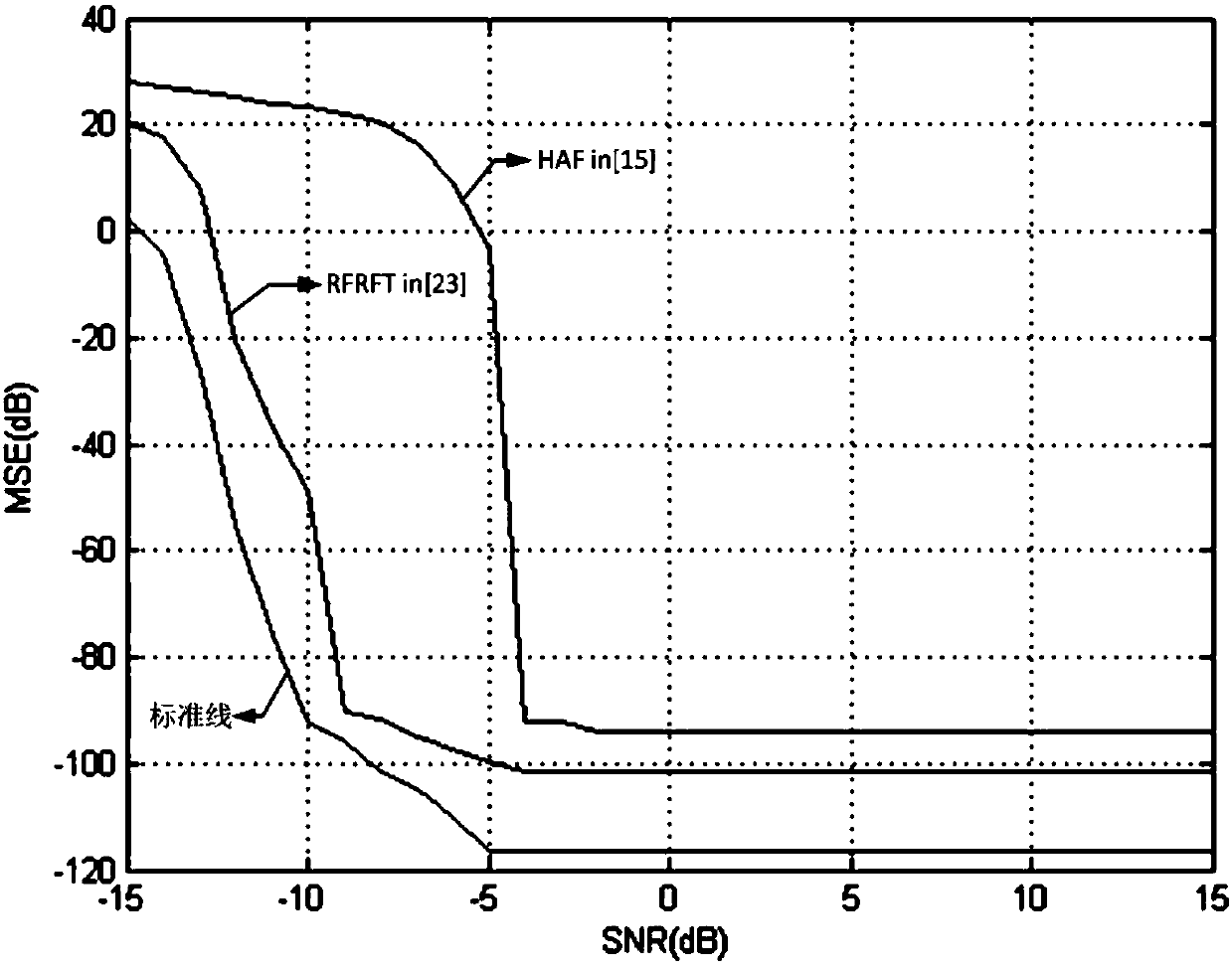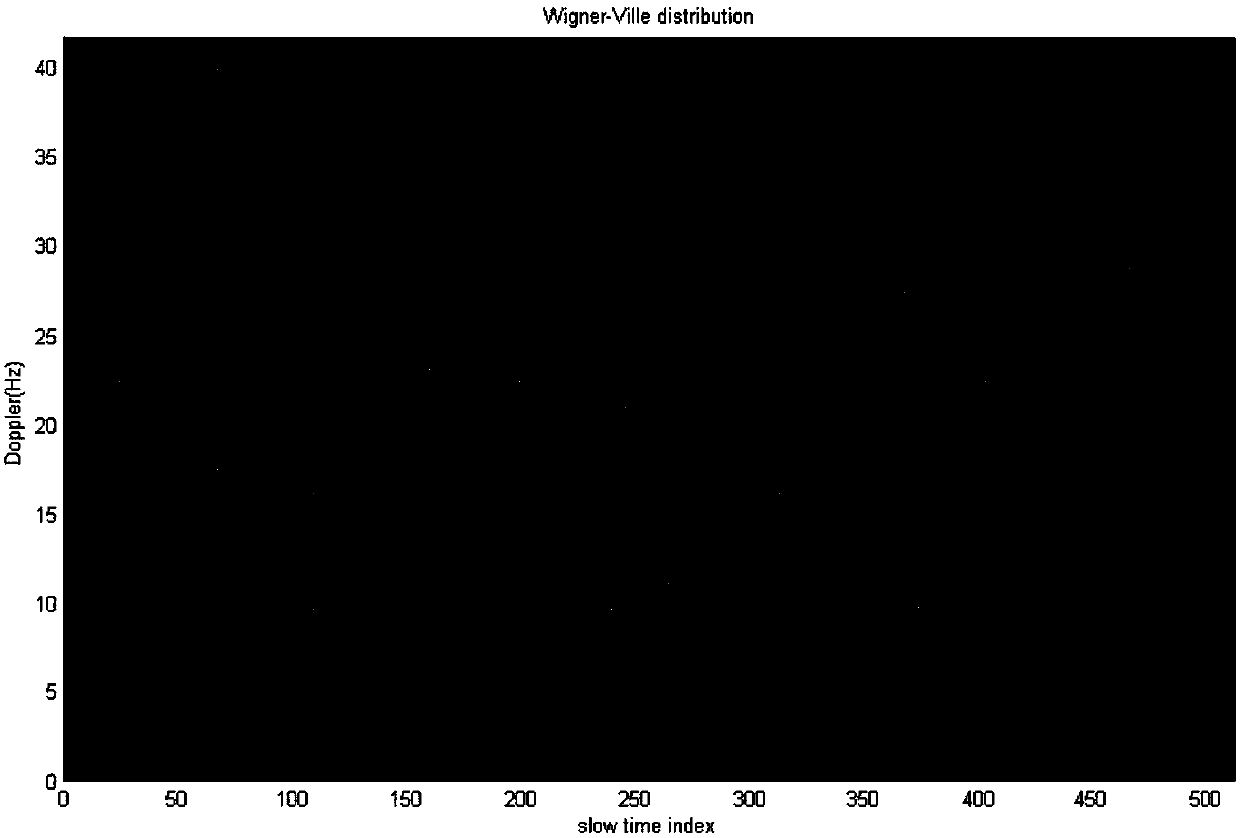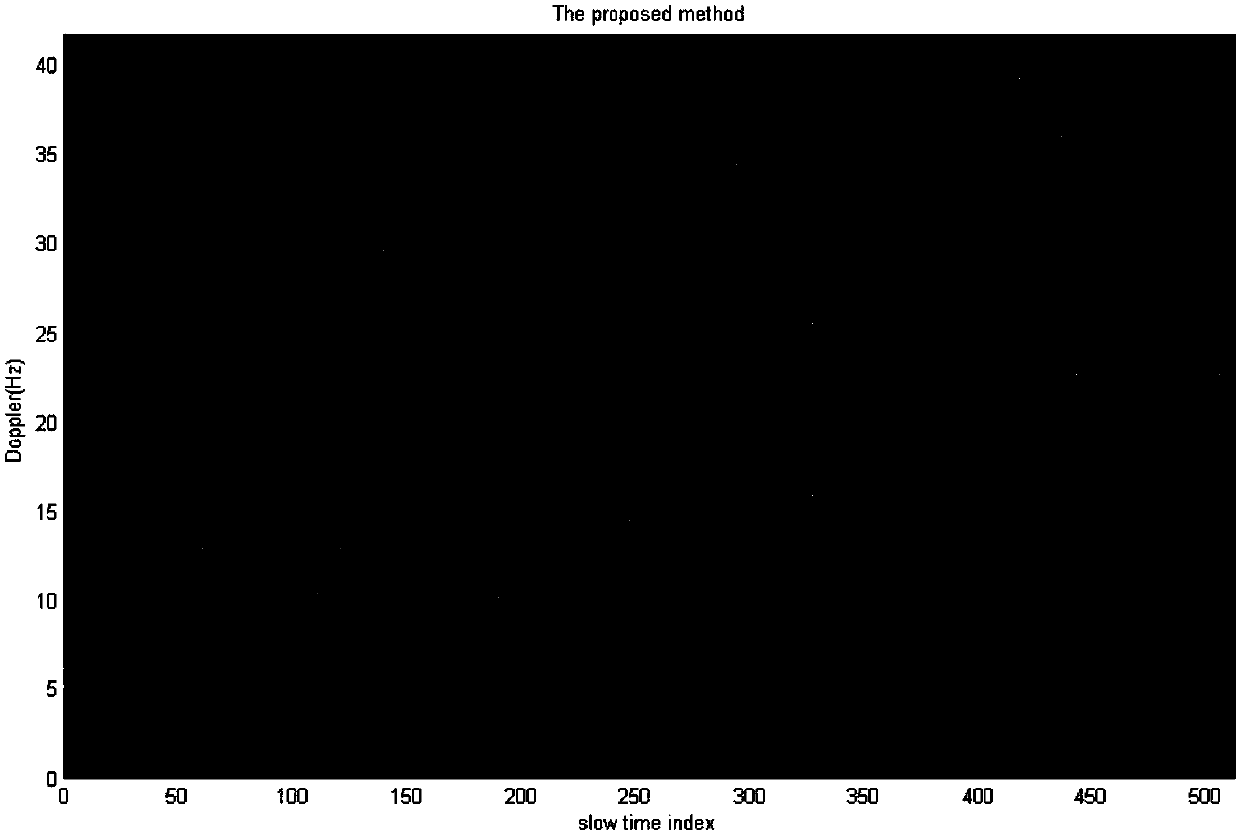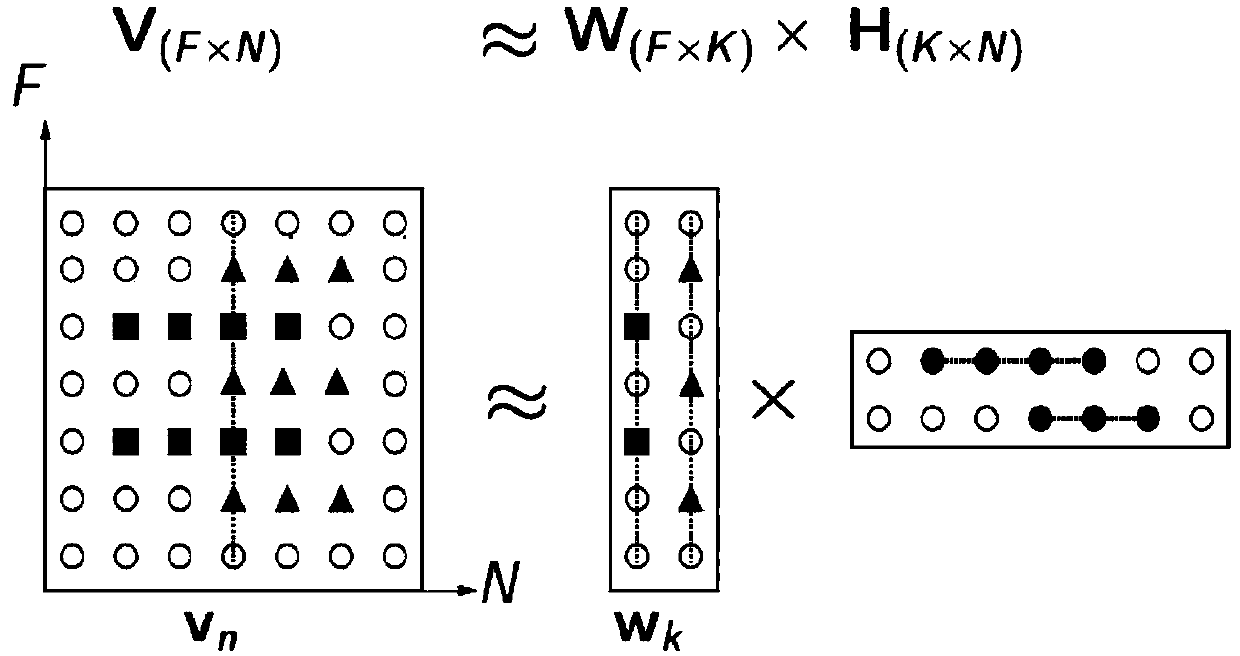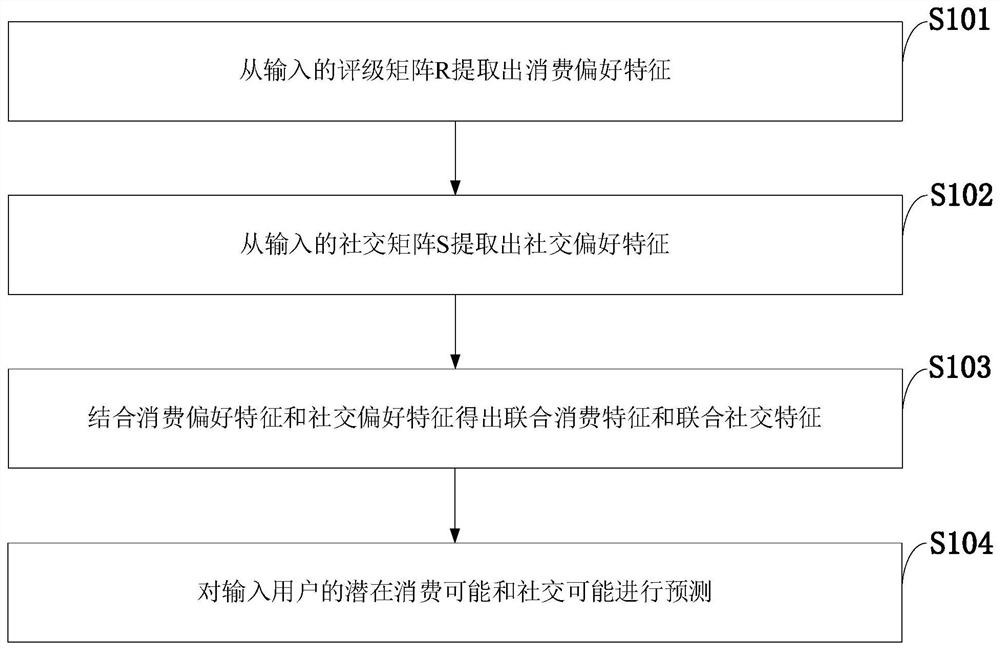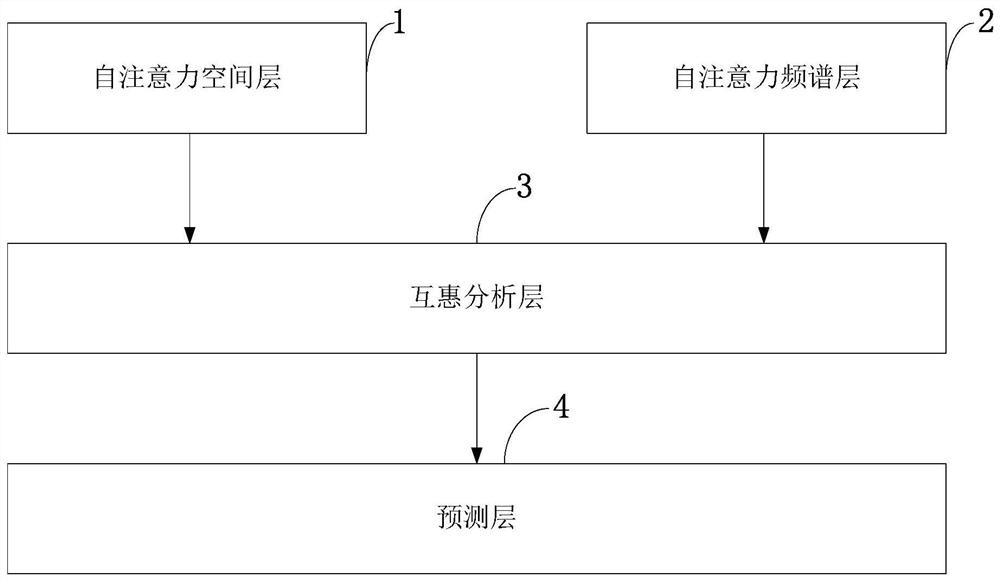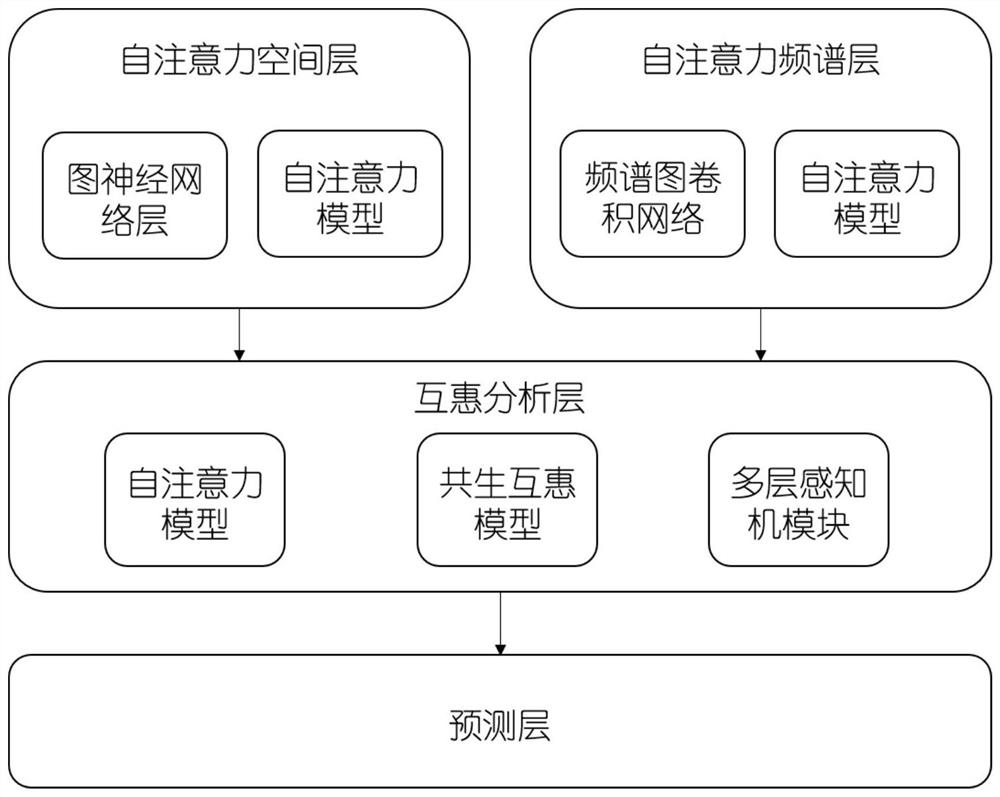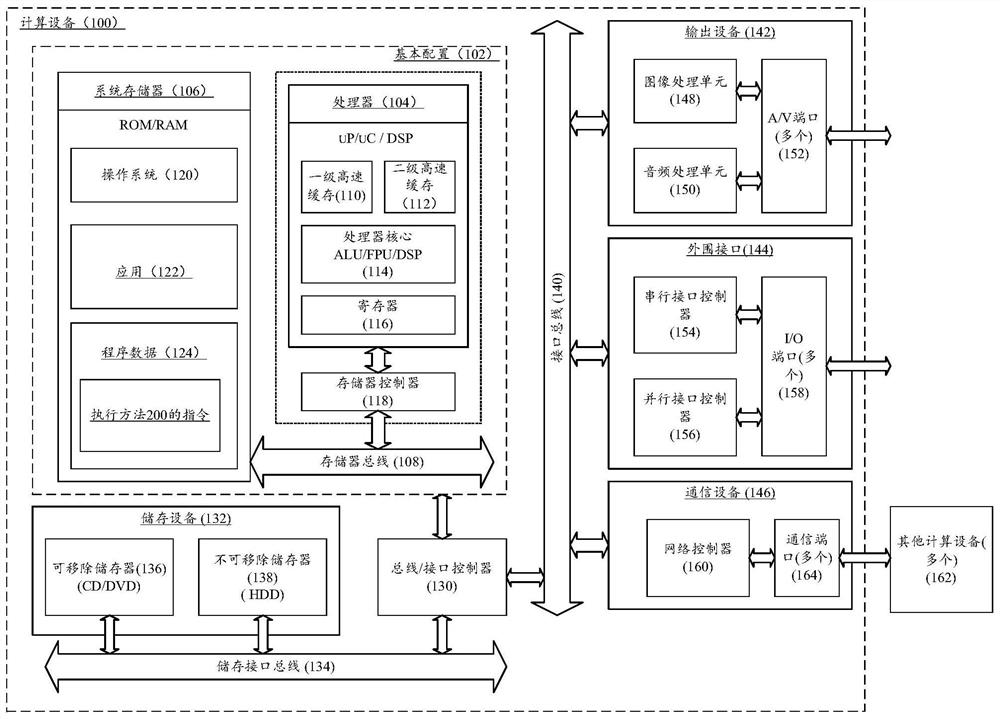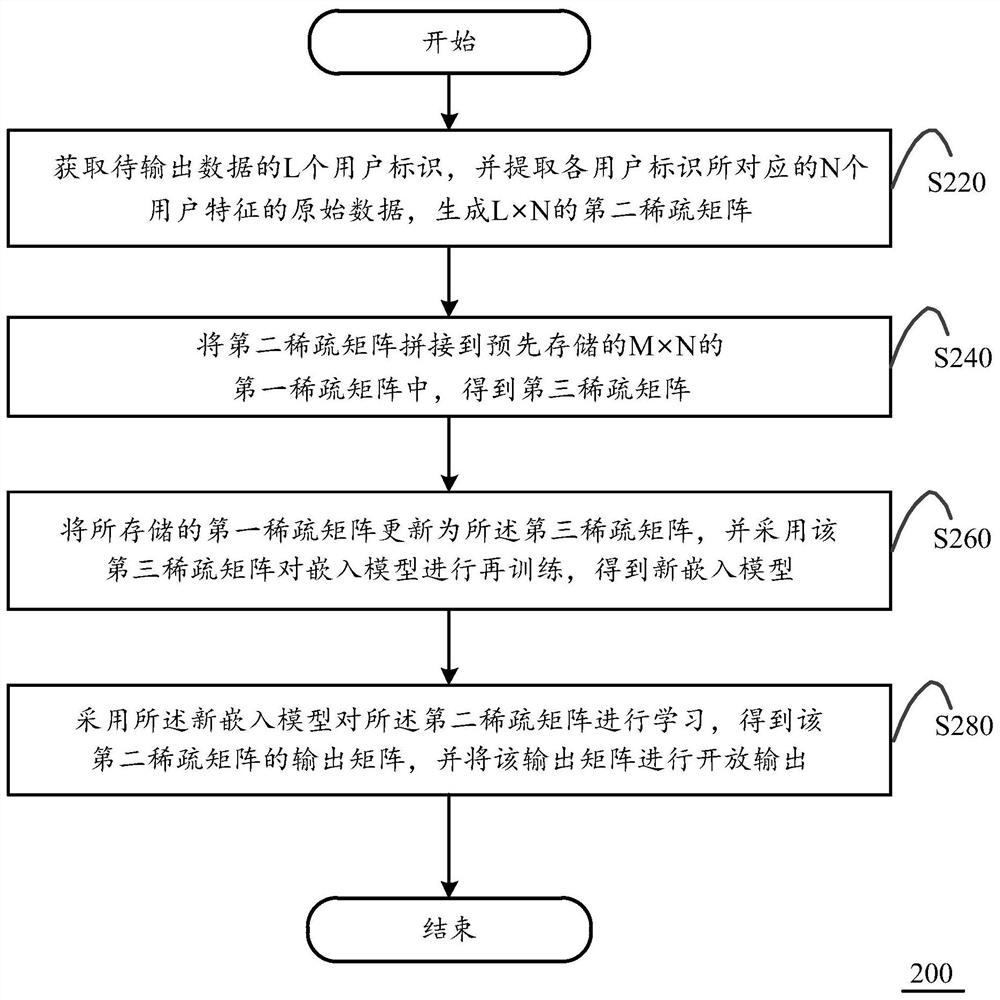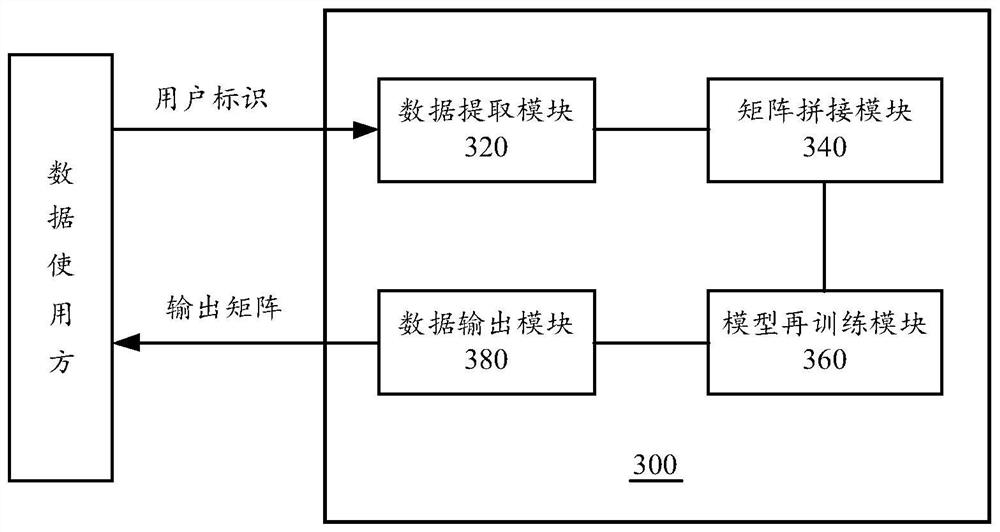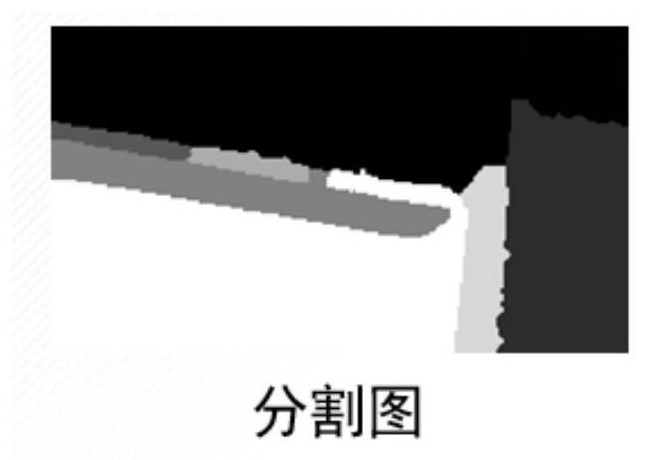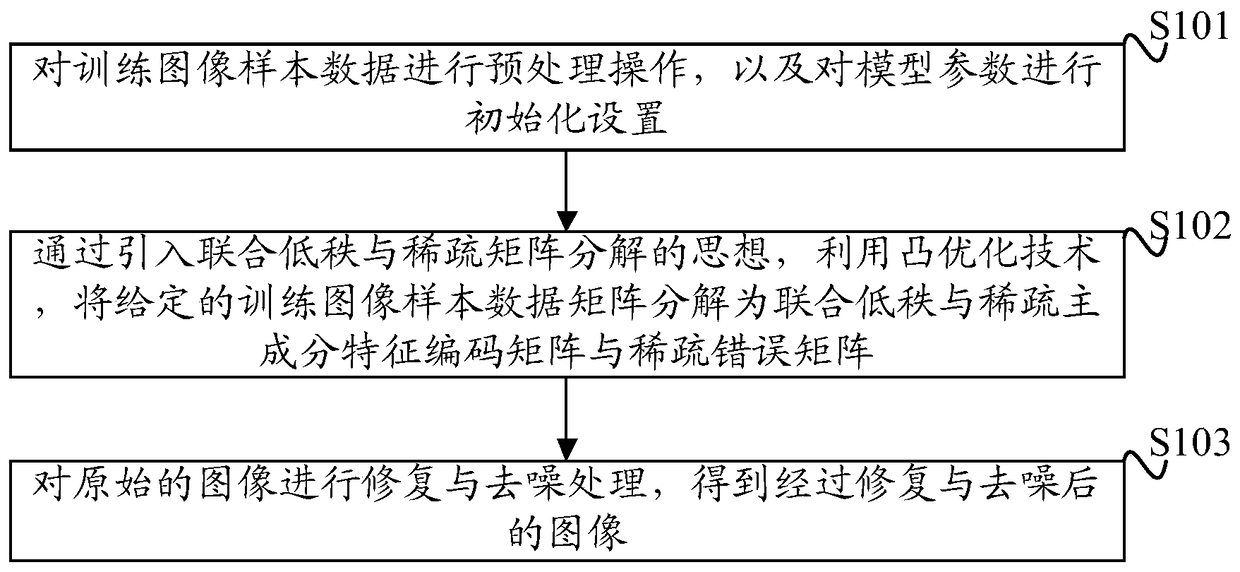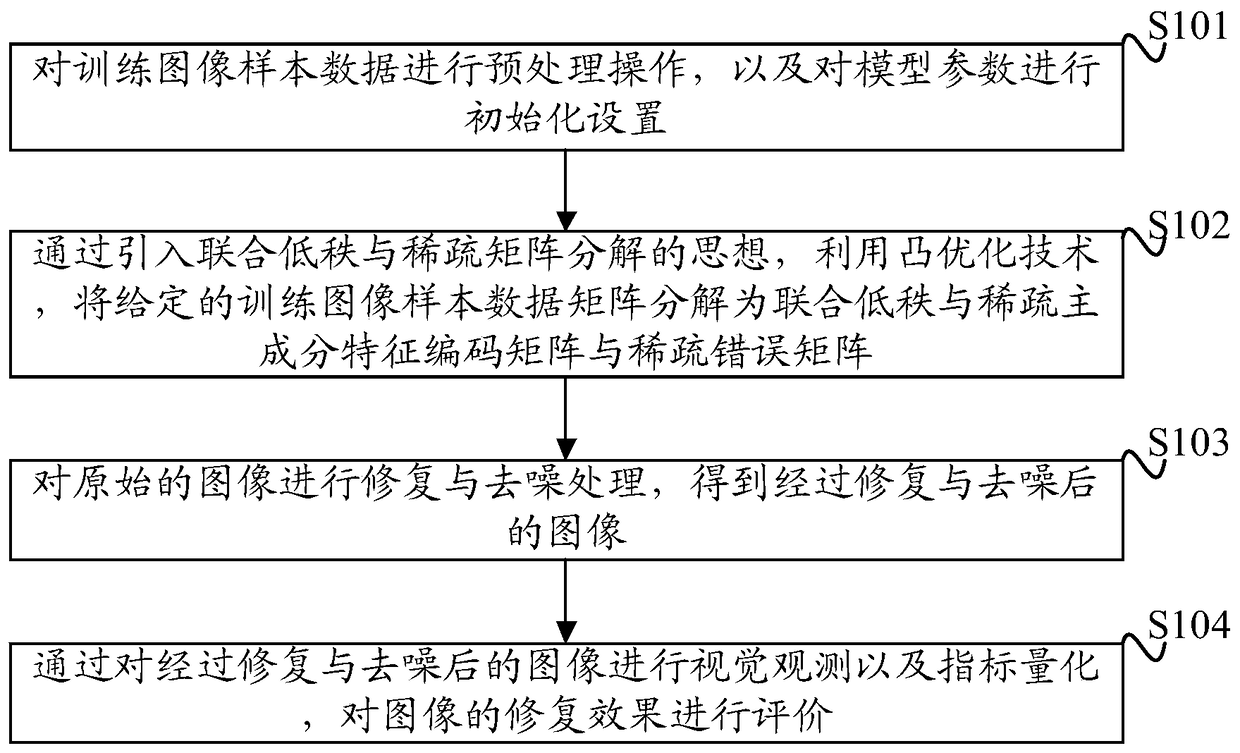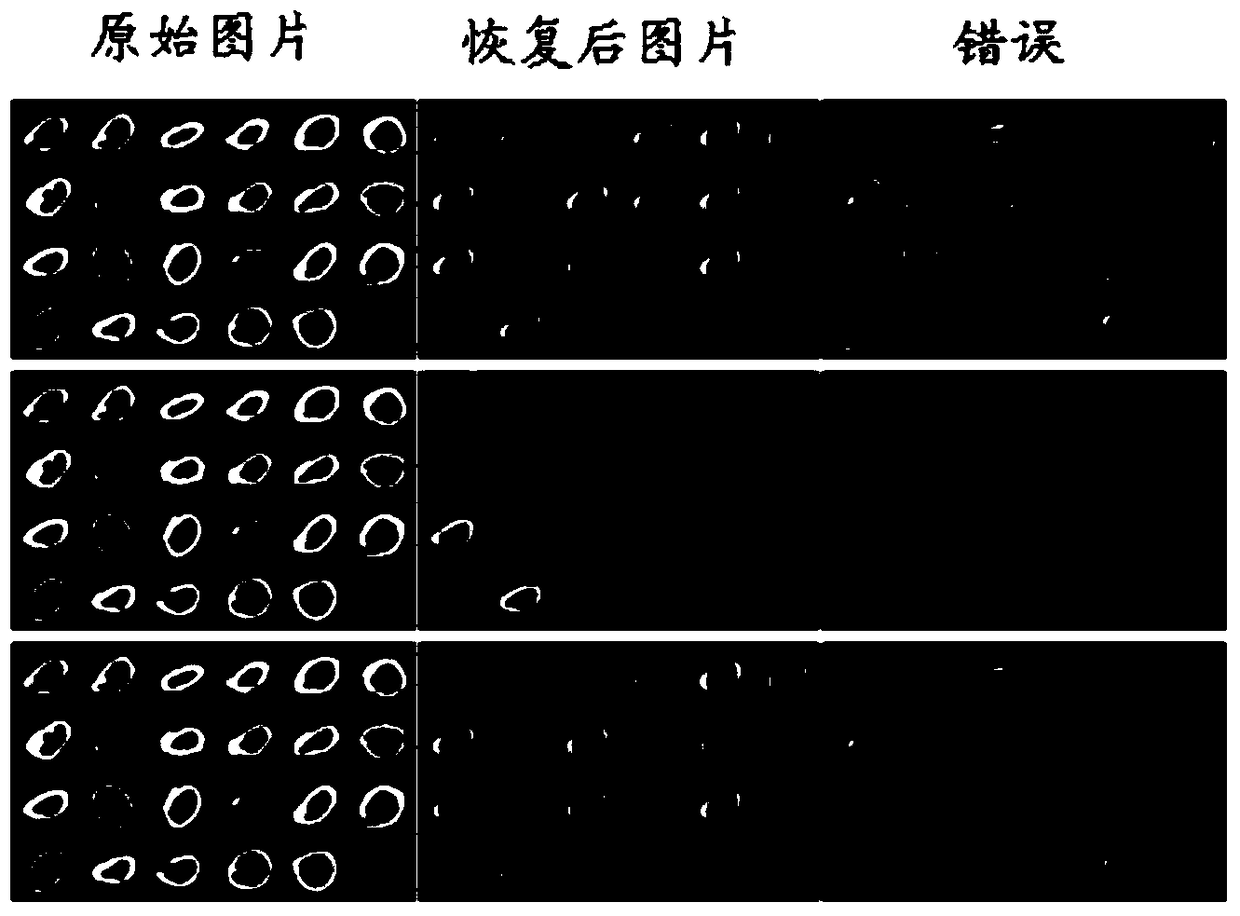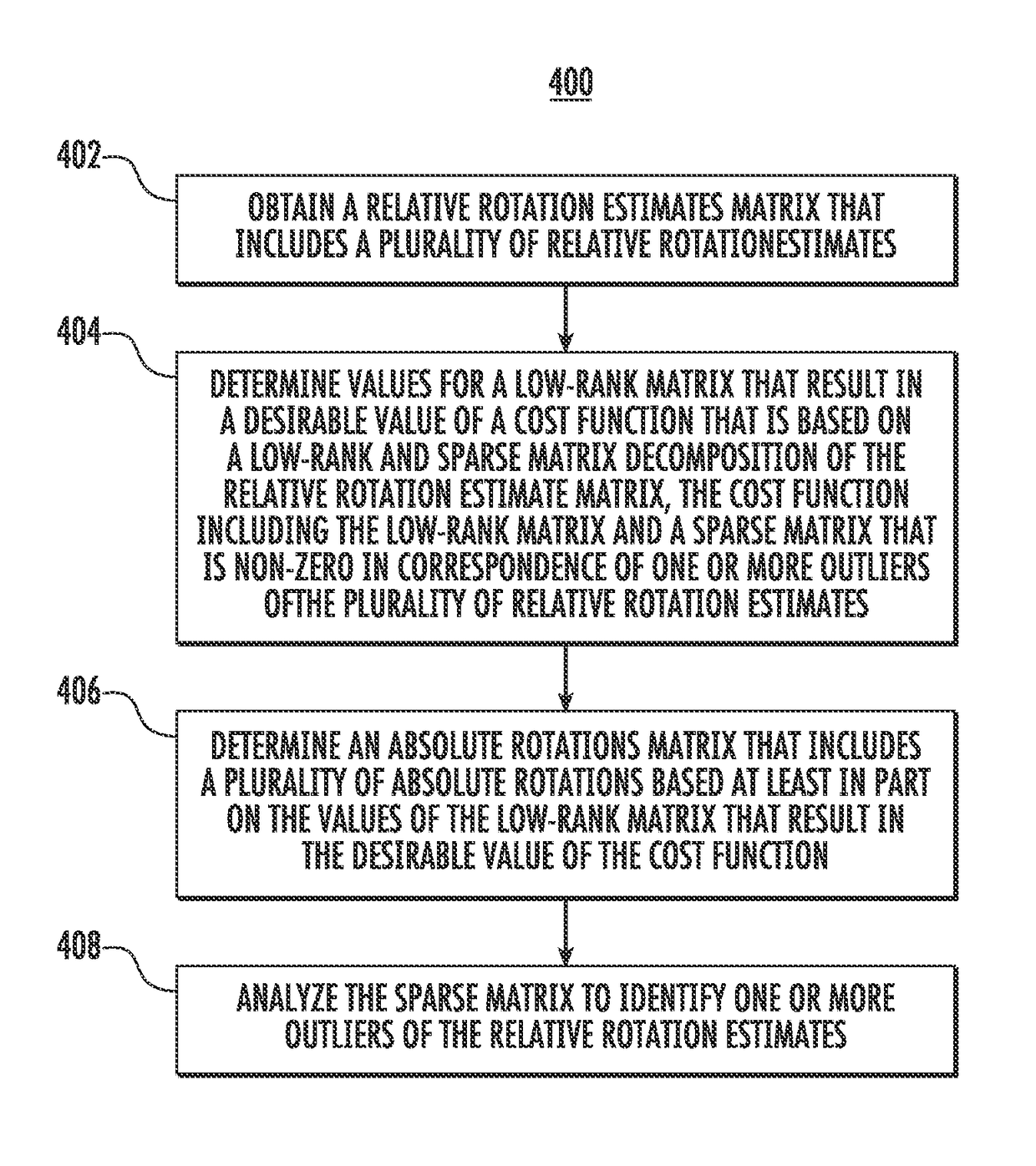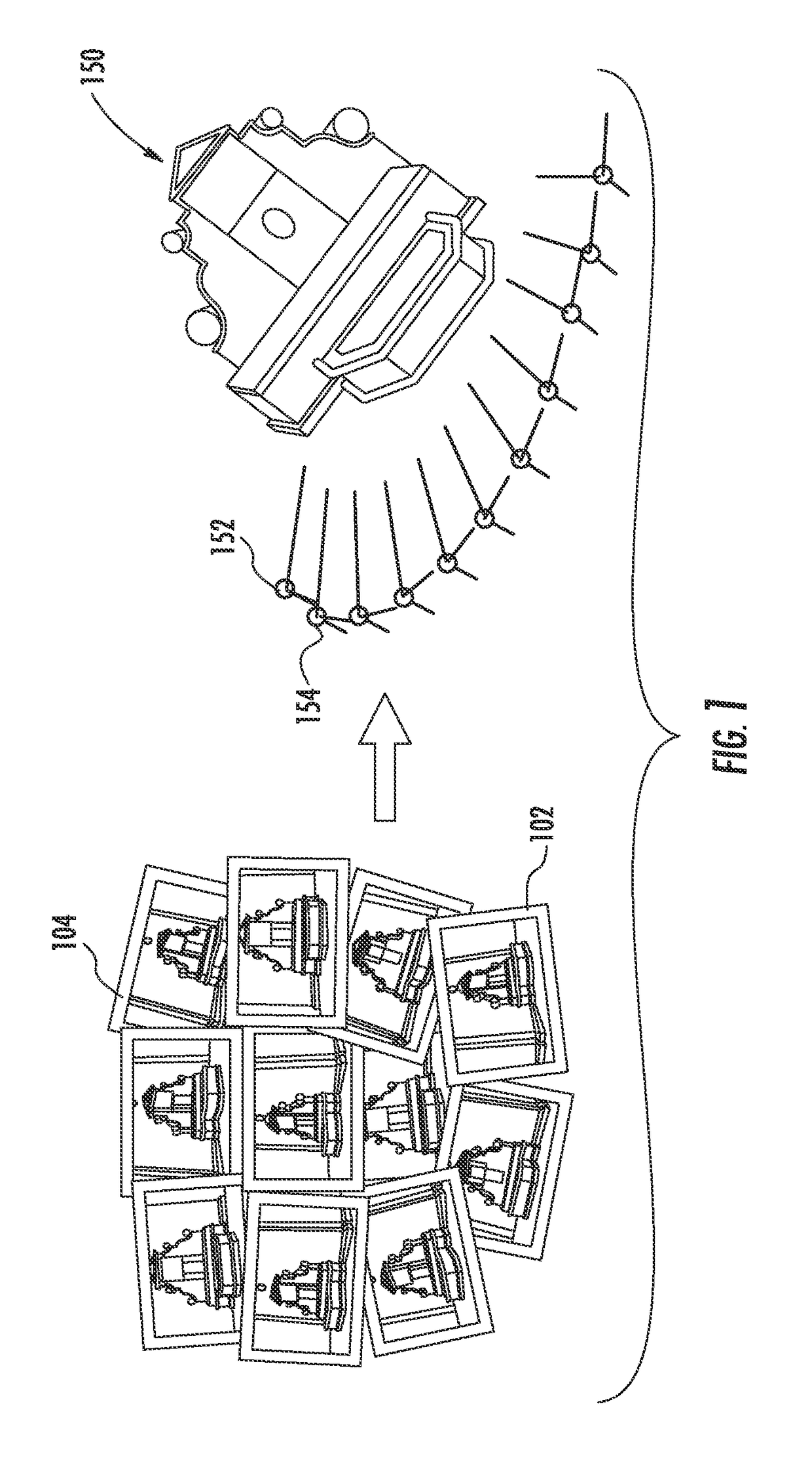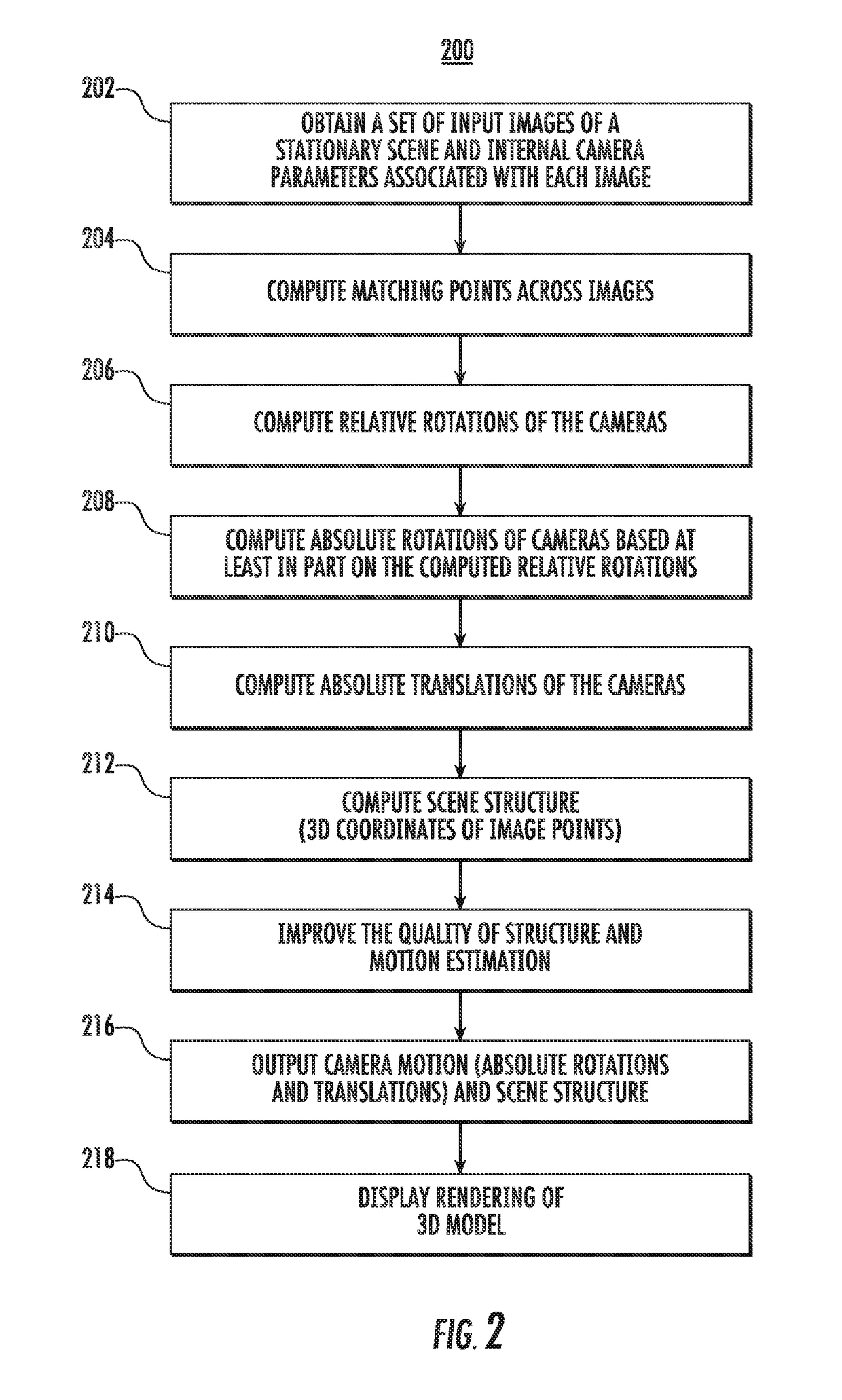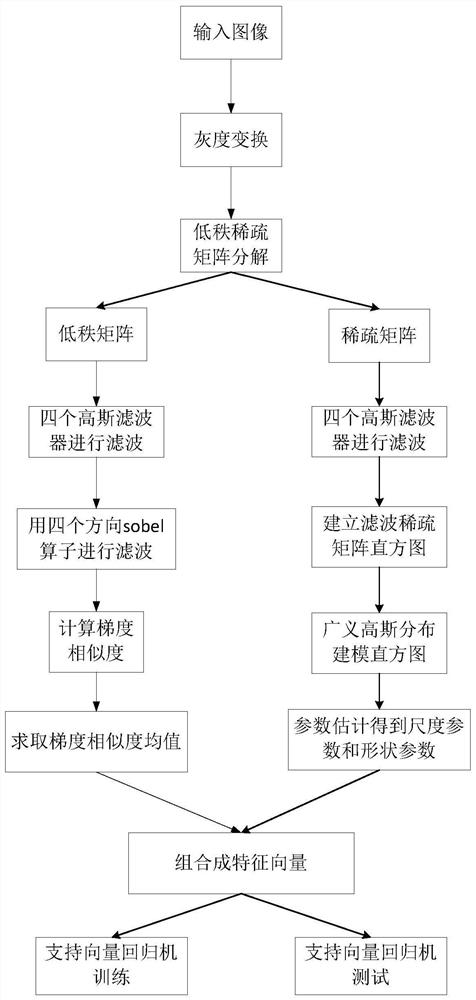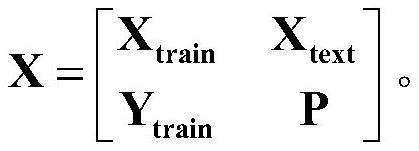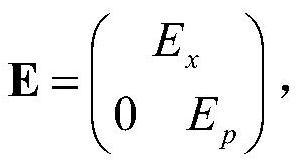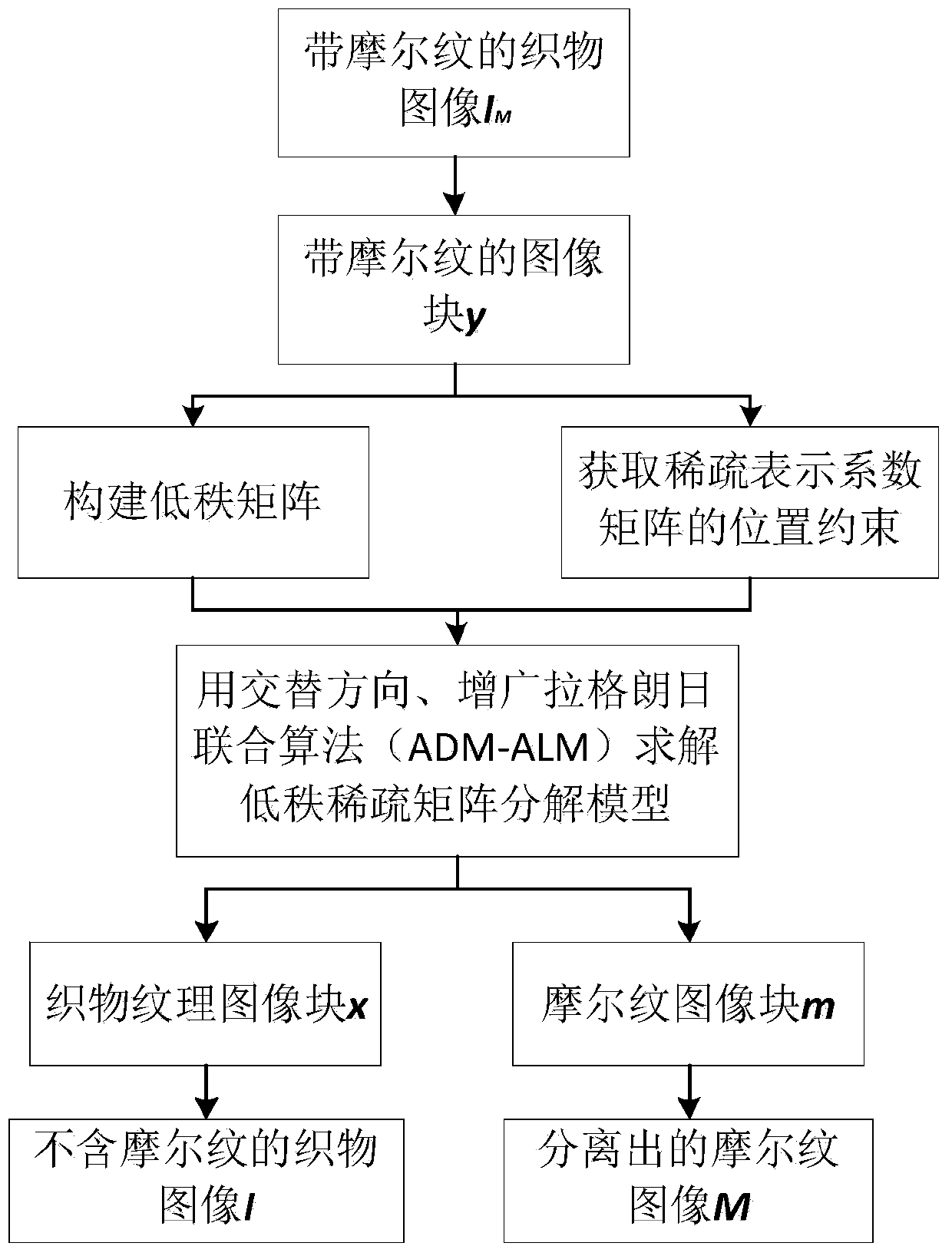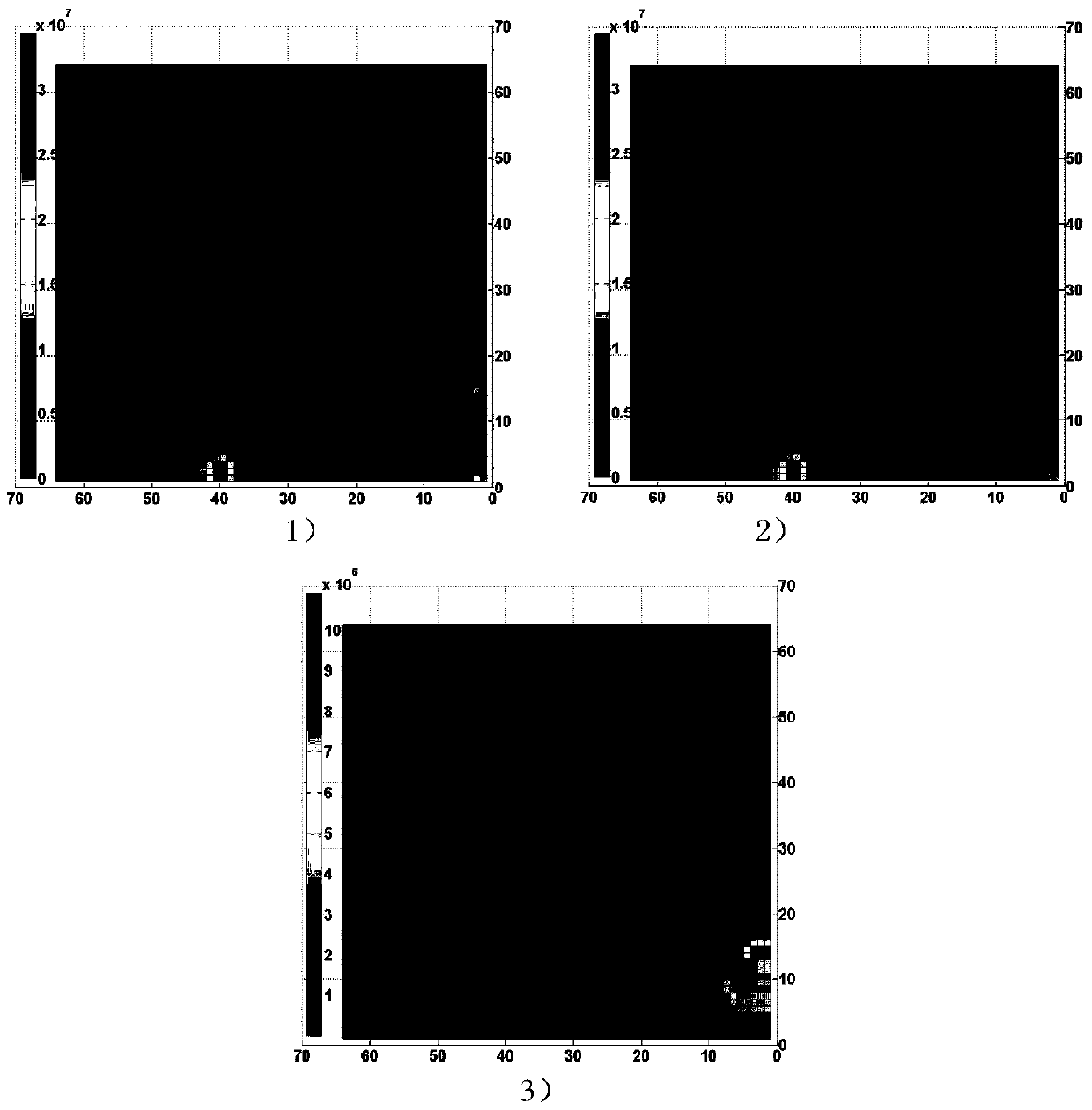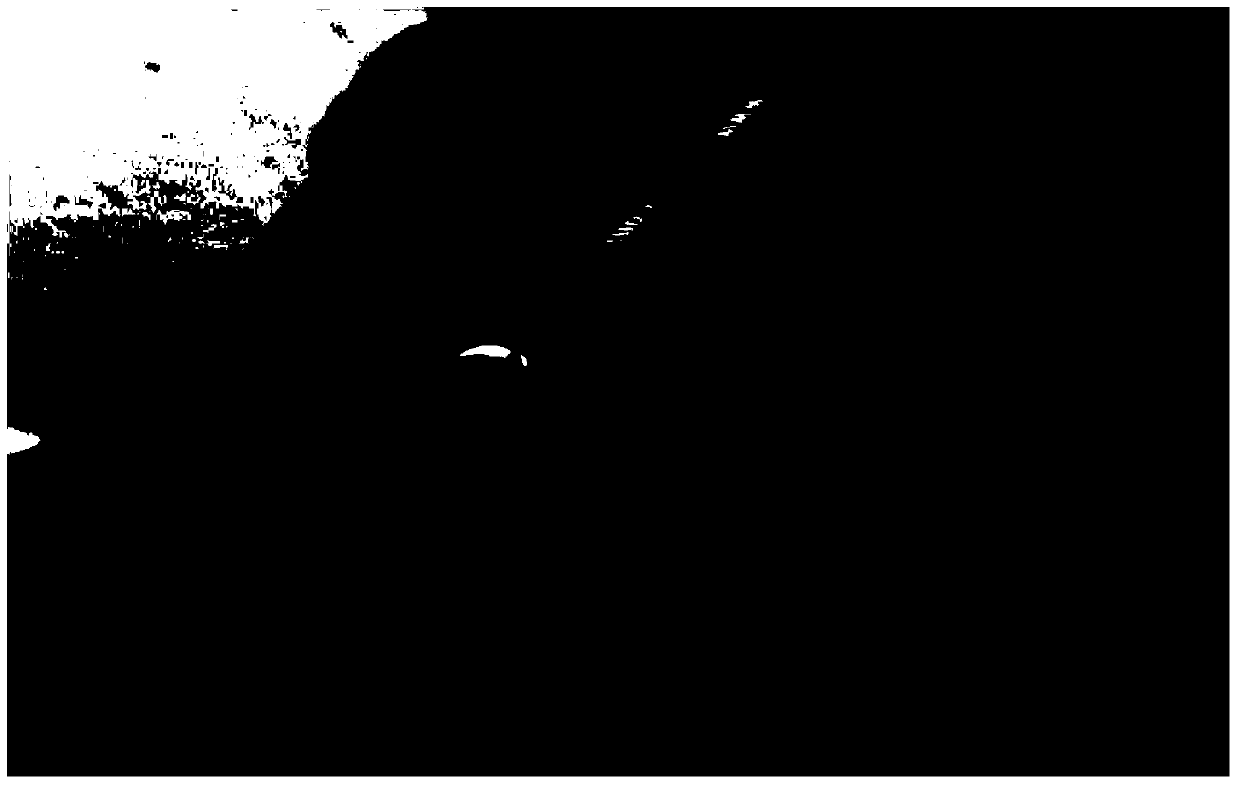Patents
Literature
35 results about "Sparse matrix factorization" patented technology
Efficacy Topic
Property
Owner
Technical Advancement
Application Domain
Technology Topic
Technology Field Word
Patent Country/Region
Patent Type
Patent Status
Application Year
Inventor
Single-channel monitor-free voice and noise separating method based on low-rank and sparse matrix decomposition
ActiveCN102915742AReduce reconstruction errorAvoid decompositionSpeech analysisDecompositionTime domain waveforms
The invention discloses a single-channel monitor-free voice and noise separating method based on low-rank and sparse matrix decomposition. The method includes the steps of converting a time domain waveform of noise-contained voice to a time frequency domain via short-time Fourier transform to obtain a magnitude spectra with noises; decomposing the magnitude spectra with the noises into a sum of a noise magnitude spectra, a voice magnitude spectra and a residual noise magnitude spectra by a low-rank and sparse matrix decomposition algorithm; and finally reconstructing a voice time-domain waveform from the voice magnitude spectra via short-time Fourier transform. Without any priori information about voice and noise, the method is the single-channel monitor-free voice and noise separating method, pure voice can be separated from noise-contained voice by the aid of an algorithm, and the single-channel monitor-free voice and noise separating method is simple, effective, and particularly suitable for voice extraction in strong-noise environment.
Owner:PLA UNIV OF SCI & TECH
Speech enhancement method based on non-negative low-rank and sparse matrix decomposition principle
The invention discloses a speech enhancement method based on the non-negative low-rank and sparse matrix decomposition principle. The method includes the first step of firstly carrying out smoothing, framing and discrete Fourier transformation on noisy speech signals to obtain noisy speech frequency spectra, the second step of allowing the noisy speech magnitude spectra of frames to serve as column vectors which are arranged in chronological order to form a noisy speech time-frequency matrix and then carrying out non-negative low-rank and sparse matrix decomposition on the noisy speech time-frequency matrix to obtain a non-negative low-rank and sparse matrix, and the third step of utilizing the sparse matrix and reconstruction of noisy speech phase positions to enhance the speech spectra and finally obtaining the enhanced speech in a time domain form through inverse Fourier transformation. By the adoption of the method, noise adaptability is high, endpoint detection and model training are not needed, parameters are fewer and easy to regulate, strong noise environmental performance is good, and therefore the method has a good application prospect.
Owner:KEY LAB OF SCI & TECH ON AVIONICS INTEGRATION TECH
Absolute rotation estimation including outlier detection via low-rank and sparse matrix decomposition
The present disclosure is directed to systems and methods to perform absolute rotation estimation including outlier detection via low-rank and sparse matrix decomposition. One example method includes obtaining a relative rotation estimates matrix that includes a plurality of relative rotation estimates. The method includes determining values for a low-rank matrix that result in a desirable value of a cost function that is based on a low-rank and sparse matrix decomposition of the relative rotation estimates matrix. The cost function includes the low-rank matrix and a sparse matrix that is nonzero in correspondence of one or more outliers of the plurality of relative rotation estimates. The method includes determining an absolute rotations matrix that includes a plurality of absolute rotations based at least in part on the values of the low-rank matrix that result in the desirable value of the cost function.
Owner:STMICROELECTRONICS SRL
Low-Rank and Sparse Matrix Decomposition Based on Schatten p=1/2 and L1/2 Regularizations for Separation of Background and Dynamic Components for Dynamic MRI
InactiveUS20170169563A1Optimizing componentsImage enhancementReconstruction from projectionPattern recognitionDecomposition
A method for determining a background component and a dynamic component of an image frame from an under-sampled data sequence obtained in a dynamic MRI application is provided. The two components are determined by optimizing a low-rank component and a sparse component of the image frame in a sense of minimizing a weighted sum of terms. The terms include a Schattenp=1 / 2 (S1 / 2-norm) of the low-rank component, an L1 / 2-norm of the sparse component additionally sparsified by a sparsifying transform, and an L2-norm of a difference between the sensed data sequence and a reconstructed data sequence. The reconstructed one is obtained by sub-sampling the image frame according to an encoding or acquiring operation. The background and dynamic components are the low-rank and sparse components, respectively. Experimental results demonstrate that the method outperforms an existing technique that minimizes a nuclear-norm of the low-rank component and an L1-norm of the sparse component.
Owner:MACAU UNIV OF SCI & TECH
Blind spectrum sensing method and device based on low-rank sparse matrix decomposition
The invention discloses a blind spectrum sensing method based on low-rank sparse matrix decomposition. The method includes: receiving wireless signals of a to-be-sensed frequency band, and sampling to obtain observation signals; performing discrete time Fourier transformation on the observation signals to obtain transformed observation signals; performing low-rank sparse decomposition on the transformed observation signals according to the sparse factors of set low-rank factors to obtain low-rank elements and sparse elements; performing reverse discrete time Fourier transformation on the low-rank elements and the sparse elements to obtain transformed low-rank elements and transformed sparse elements, and acquiring final observation signals according to the transformed low-rank elements and the transformed sparse elements; calculating the average energy value of the transformed sparse elements and the final observation signals in a time domain to obtain a sparse energy value and a final observation signal energy value, and judging whether the to-be-sensed frequency band is idle or not according the relation of the sparse energy value and the final observation signal energy value with a preset judging threshold. The method is applicable to spectrum sensing with uncertain noise and high in sensing precision.
Owner:BEIJING UNIV OF POSTS & TELECOMM
Low-rank and sparse matrix decomposition dynamic magnetic resonance imaging method
The present invention discloses a low-rank and sparse matrix decomposition dynamic magnetic resonance imaging method, and relates to the field of magnetic resonance imaging. The method comprises the steps of: introducing a low-rank and sparse model into dynamic magnetic resonance imaging; performing analysis of low-rank and sparse matrix decomposition through non-correlated requirements, and completing improvement; and applying the improved low-rank and sparse decomposition to image reconstruction of undersampling dynamic magnetic resonance imaging. The low-rank and sparse matrix decompositiondynamic magnetic resonance imaging method is employed to ensure the quality and the imaging speed of the image reconstruction so as to improve the image reconstruction quality in a condition of the same undersampling rate.
Owner:NANJING UNIV OF POSTS & TELECOMM
Low-rank sparse decomposition hyperspectral anomaly detection method based on local features
ActiveCN111583230AImprove accuracyImprove readabilityImage enhancementImage analysisAnomaly detectionImage description
In order to improve the precision of hyperspectral target detection, the invention provides a low-rank sparse matrix decomposition hyperspectral abnormal target detection method based on local features in allusion to the lack of low-rank information based on the local features in hyperspectral abnormal target detection. According to the method, on the basis of a traditional low-rank sparse matrixdecomposition method, the background part of a hyperspectral image is further refined to represent the product of a basis matrix B and a coefficient matrix C according to the low-rank property of thebackground of the hyperspectral image and the sparsity of an abnormal target, and a hyperspectral image description model based on local features is constructed; secondly, iterative updating rules ofthe new basis matrix B, the coefficient matrix C and the sparse part S are constructed; and finally, abnormal target detection is performed according to a solving result. Experiments prove that the method can improve the hyperspectral abnormal target detection precision.
Owner:CHINA UNIV OF PETROLEUM (EAST CHINA)
Signal transmission method of large-scale antenna system
ActiveCN106301503AImprove resource utilizationSpatial transmit diversityPilot signal allocationPrecodingUplink transmission
The invention provides a signal transmission method of a large-scale antenna system. The signal transmission method is characterized in that based on the sparsity of channels in an angle domain, uplink transmission and downlink transmission are performed by utilizing a sparse matrix decomposition method, wherein in the uplink transmission process, each user has different user codes and only uses one resource block to transmit a pilot signal; in the downlink transmission process, a base station directly designs precoding strategies according to the uplink channel directions and only needs to distribute one resource block to transmit the pilot signal; a user estimates a channel coefficient value of the downlink channel according to the received pilot signal, then detects data and does not need to feed the channel signal back to the base station. The signal transmission method provided by the invention has the advantage that in the uplink transmission and the downlink transmission, only one resource block needs to be used for transmitting the pilot signal; therefore, the resource utilization rate of the system is obviously increased.
Owner:SHANGHAI TECH UNIV
Method and apparatus for separating foreground and background of video sequence
InactiveCN106384356AImprove robustnessAchieve separationImage enhancementImage analysisPattern recognitionVideo sequence
The present disclosure provides a method and apparatus for separating the foreground and background of a video sequence. The method includes the following steps that: a first video sequence is obtained, wherein the first video sequence contains at least two video frames of image data; the image background of the first video sequence is corrected, so that a second video sequence of which the image background is static can be obtained; and a low-rank sparse matrix decomposition algorithm is adopted to separate the foreground and background of the second video sequence. With the method and apparatus provided by the technical schemes of the invention adopted, a video sequence of which the image background changes due to slight jigger of a camera can be corrected, so that the image background of the corrected video sequence can be static, and then, the low-rank sparse matrix decomposition algorithm can be adopted to separate the foreground and background of the video sequence, and the foreground and background of the video sequence can be obtained, and high robustness can be achieved.
Owner:BEIJING XIAOMI MOBILE SOFTWARE CO LTD
Medical index missing data complementing method for patients with peptic ulcer
ActiveCN109166626AImprove accuracyMedical data miningMedical automated diagnosisCure rateMissing data
The invention relates to a medical index missing data complementing method for patients with peptic ulcer. According to the method of the invention, an original sparse matrix is decomposed into the product of two matrices with a correlation relation; the drawbacks of a method which complements missing data with only one dimension considered in the prior art can be eliminated; not only is the dimension of correlation relationships between patients considered, but also the dimension of the correlation relationships between time series is considered; a matrix decomposition method is adopted to complement the missing data of the measurement indexes of the patients with peptic ulcer within one year; and therefore, the accuracy of data is improved, references can be provided for the clinical decision-making of doctors, the conditions of the patients can be timely monitored through completed medical data, and the cure rate of the patients can be improved.
Owner:SUN YAT SEN UNIV
SAR radio frequency interference suppression method based on low rank and dual sparse matrix decomposition
PendingCN113671498AAchieve inhibitionReduce reconstruction errorRadio wave reradiation/reflectionRadio frequencyRandom projection
The invention belongs to the technical field of SAR signal processing, and discloses an SAR radio frequency interference suppression method based on low rank and dual sparse matrix decomposition. On the basis of SAR echo signal time-frequency characteristic analysis, what is proposed is that an RFI time-frequency matrix has low-rank and sparse characteristics, and in combination with sparsity of a target echo signal, an SAR echo signal separation model combining low-rank and double sparse characteristic constraints is established. And the multi-constrained signal separation optimization problem is converted into two optimization solution sub-problems by adopting an alternating iterative projection strategy: interference low-rank reconstruction and signal sparse recovery. In order to solve the problem of low-rank reconstruction of interference, a bilateral random projection strategy is adopted to carry out low-rank estimation, and sparse solution of RFI and target echo signals is realized in combination with a hard threshold method. According to the method, the RFI is subjected to refined constraint, so that the model is more accurate, and the fitting precision of the model to the data is improved.
Owner:XIDIAN UNIV
Method for removing dynamic background based on online transmission transformation and low-rank sparse matrix decomposition
ActiveCN110136164AGuaranteed continuityEfficient separationImage enhancementImage analysisMatch algorithmsDecomposition
The invention discloses a method for removing a dynamic background based on online transmission transformation and low-rank sparse matrix decomposition, belonging to the field of video image background removal. The invention solves the problem that a foreground and a background in a moving video image sequence cannot be effectively separated in the prior art. The method comprises the following steps: carrying out graying preprocessing on a video sequence; carrying out feature point matching on two adjacent frames of images based on a Surf matching algorithm; after matching, calculating the Euclidean distance between feature matching points of two adjacent frames of images, determining the foreground speed and the background speed according to a clustering method, meanwhile, determining a projection operator, carrying out the motion process of a transmission transformation simulation camera according to the projection operator, and acquiring a processed video image sequence; performingonline low-rank sparse matrix decomposition based on the speed and the video image sequence, and correcting the foreground part after decomposing each image; and after correction, reconstructing an original video sequence according to transmission inverse transformation to obtain a foreground image sequence and a background image sequence. The method is used for dynamic background removal.
Owner:UNIV OF ELECTRONIC SCI & TECH OF CHINA
Hyperspectral image abnormal target detection method based on low rank and sparse decomposition
ActiveCN111046800AHigh precisionImprove computing efficiencyClimate change adaptationCharacter and pattern recognitionPattern recognitionImage conversion
The invention belongs to the technical field of remote sensing image processing, and discloses a hyperspectral image abnormal target detection method based on low rank and sparse decomposition. The method comprises the steps: S1, converting a hyperspectral image into a two-dimensional matrix; S2, performing low-rank and sparse matrix decomposition on the two-dimensional matrix by using the low-rank characteristic of the background in the image and the sparse characteristic of the target to obtain a low-rank matrix and a sparse matrix; S3, for the low-rank background matrix, calculating the mean value of the low-rank background matrix, and then calculating a global covariance matrix; and S4, traversing the hyperspectral image by using double sliding windows to obtain a detection result. Themethod has the characteristics of simplicity, quickness and high precision, and has good practical value in the aspects of quality detection, environmental monitoring, military reconnaissance and thelike by adopting a hyperspectral technology.
Owner:中国人民解放军火箭军工程大学
Textile defect detection method based on low-rank sparse matrix decomposition
PendingCN111862027AImprove detection accuracyImprove robustnessImage enhancementImage analysisPattern recognitionRank factorization
The invention relates to the technical field of textile detection, and particularly to a textile defect detection method based on low-rank sparse matrix factorization. The method comprises the following steps: firstly, partitioning a periodic textile according to periodic information to obtain defect priori for guiding a low-rank factorization model, and then adding Laplace regularization to increase the distance between a background and a defect area; and finally, segmenting the generated sparse matrix by adopting an optimal threshold segmentation algorithm to complete defect detection. The invention provides a textile detection method based on low-rank sparse matrix factorization. Defect prior is determined through a block segmentation method, the defect prior is added into a low-rank decomposition model, the weighted low-rank decomposition model is constructed, the detection precision of large defect blocks is improved, the distance between a defect area and a background is increased through a Laplace regularization term, and the detection precision and robustness of defects are further improved.
Owner:CHANGZHOU UNIV
Product pushing method and device based on sparse matrix, computer equipment and medium
PendingCN111523960ASmall amount of calculationImprove accuracyCharacter and pattern recognitionBuying/selling/leasing transactionsFeature vectorAlgorithm
The invention belongs to the field of computers, and discloses a product pushing method and a product pushing device based on a sparse matrix, computer equipment and a readable storage medium. The product pushing method comprises the steps of: acquiring a product file, and constructing a product feature vector belonging to the product file; performing clustering analysis on the product feature vectors according to vector distances among the product feature vectors to obtain a to-be-matched product database; acquiring object labeling information, marking associated objects in the same object type according to the relevance between a product and the objects, and constructing a sparse matrix of the associated objects; decomposing the sparse matrix into an object matrix and a product matrix, and acquiring a matching degree matrix of the objects and the product; sorting matching degrees of the objects in the matching degree matrix, taking the product corresponding to the highest matching degree as a target matching product, pushing the target matching product to the object, and taking the object as a target matching object. By adopting the product pushing method, the technical problemsof more data processing processes and more complicated processing in the prior art are solved.
Owner:PINGAN INT SMART CITY TECH CO LTD
Injection product defect classification method based on machine learning
ActiveCN110889458AEffective classificationImprove accuracyCharacter and pattern recognitionManufacturing computing systemsProduction lineClassification methods
The invention provides an injection product defect classification method based on machine learning. The method comprises the following steps: collecting a training sample; inputting the training sample into a classifier for training to obtain a trained classifier; presetting a shooting time period for the shooting device, acquiring an image of the to-be-classified product and preprocessing the image; inputting an image of a to-be-classified product into the trained classifier to obtain a classification label, and obtaining a label matrix through one-hot coding and transcoding; stacking the label matrix to obtain a stacking matrix containing label information; performing data separation on the stacking matrix to obtain a low-rank matrix and a sparse matrix, and decomposing the sparse matrixinto noise of a training sample and noise of an image of a to-be-classified product; iterating the low-rank matrix, and taking a label matrix corresponding to the iterated optimal solution as an optimized label matrix; and the injection product system converting the optimized label matrix into a machine signal, so that a machine on a production line can control defect classification of injectionproducts.
Owner:GUANGDONG UNIV OF TECH
Subspace speech enhancement method based on constrained low rank and sparse decomposition
The invention discloses a subspace speech enhancement method based on constrained low rank and sparse decomposition. The subspace speech enhancement method based on constrained low rank and sparse decomposition includes the following steps: (1) enframing noised speech; (2) constructing a noised matrix Y in a time domain for each frame of noised speech; (3) performing SVD (singular value hard) decomposition on Y, and using a synthetic analysis method to determine the effective rank P of pure speech according to the SVD decomposition result; (4) performing low rank and sparse matrix decomposition on Y, to obtain a low rank matrix L; (5) performing average operation on the diagonal line of the obtained L, and extracting an enhanced signal therefrom; and (6) for each frame, iteratively repeating the above steps to output a speech signal after the number of iterations are reached. The subspace speech enhancement method based on constrained low rank and sparse decomposition has the advantages of the subspace method and the low rank and sparse matrix decomposition: the data can be processed on line frame by frame, thus being able to be applied to a speech enhancement task for real-time processing; the effective rank of the low rank matrix can be automatically estimated according to the noise environment; and the subspace speech enhancement method can be applied to arbitrary noise environments, including steady state and unsteady noise.
Owner:CHINESE AERONAUTICAL RADIO ELECTRONICS RES INST
Composite material defect depth prediction method
PendingCN110880170AAccurate predictionImprove forecast accuracyImage enhancementImage analysisTemperature curveLinear relationship
The invention discloses a depth prediction method for defects of a composite material. The method comprises the steps of carrying out qualitative analysis based on a sparse matrix decomposition algorithm; utilizing Gaussian Transform, extracting the thermal contrast temperature curves of the defect area and the non-defect area, and through taking the peak time of the thermal contrast curve as thecharacteristic time of different depths, remapping the nonlinear relationship between the theoretically characteristic time and the defect depth into the linear relationship, so that the defect depthis accurately predicted, and the method has the characteristics of simplicity, convenience, high prediction precision and the like.
Owner:四川沐迪圣科技有限公司
Parameter estimation method for OTHR (over-the-horizon radar) maneuvering target based on sparse decomposition of instantaneous autocorrelation matrix
ActiveCN107861115AImprove estimation accuracyRadio wave reradiation/reflectionFrequency spectrumDecomposition
The invention discloses a parameter estimation method for an OTHR (over-the-horizon radar) maneuvering target based on sparse decomposition of an instantaneous autocorrelation matrix, and belongs to the field of radar technologies. The invention provides a new method for detecting sky-wave radar maneuvering target based on sparse matrix decomposition of an instantaneous autocorrelation matrix in allusion to two problems such as long coherent integration time which results in serious spectrum expansion of the maneuvering target and large beam coverage area which generally has multiple maneuvering targets at the same time in parameter estimation for the sky-wave radar maneuvering target. The method comprises the steps of firstly performing instantaneous autocorrelation transform on echo waves, then performing cross-term suppression on the instantaneous autocorrelation matrix, then performing sparse decomposition on the instantaneous autocorrelation matrix, finally performing Hough transform on the decomposed sparse matrix to obtain the instantaneous frequency of signals, and thus estimating motion parameters of the target. Compared with the existing OTHR maneuvering target parameterestimation method, the method disclosed by the invention has the advantages that the parameter estimation accuracy is high, the target can be detected under a condition that the signal-to-noise ratiois -13dB, and multiple targets can be simultaneously detected.
Owner:UNIV OF ELECTRONICS SCI & TECH OF CHINA
Network hot topic discovery method and system
InactiveCN107943816ASatisfy the characteristics of topic sparsityEfficient decompositionNatural language data processingText database queryingExpectation–maximization algorithmDecomposition
The present invention proposes a network hot topic discovery method and system based on sparse matrix decomposition and a topic model. The method comprises: constructing a word co-occurrence matrix for web texts, for massive web texts, removing low-frequency lexical terms when the document size reaches a certain level, and using the words to construct the word co-occurrence matrix; carrying out sparse non-negative matrix decomposition, carrying out decomposition on the word co-occurrence matrix to obtain a lexical term-topic matrix and a document topic matrix, and taking the matrices as the next input; and taking the two matrices obtained by matrix decomposition as the initial condition to input into the topic model, obtaining the optimal solution through the expectation maximization algorithm, and carrying out steps such as sorting the number of documents with specific topics, and the like to finally realize the discovery of network hot topics.
Owner:THE 28TH RES INST OF CHINA ELECTRONICS TECH GROUP CORP
Single-channel monitor-free voice and noise separating method based on low-rank and sparse matrix decomposition
ActiveCN102915742BReduce reconstruction errorAvoid decompositionSpeech analysisDecompositionTime domain waveforms
The invention discloses a single-channel monitor-free voice and noise separating method based on low-rank and sparse matrix decomposition. The method includes the steps of converting a time domain waveform of noise-contained voice to a time frequency domain via short-time Fourier transform to obtain a magnitude spectra with noises; decomposing the magnitude spectra with the noises into a sum of a noise magnitude spectra, a voice magnitude spectra and a residual noise magnitude spectra by a low-rank and sparse matrix decomposition algorithm; and finally reconstructing a voice time-domain waveform from the voice magnitude spectra via short-time Fourier transform. Without any priori information about voice and noise, the method is the single-channel monitor-free voice and noise separating method, pure voice can be separated from noise-contained voice by the aid of an algorithm, and the single-channel monitor-free voice and noise separating method is simple, effective, and particularly suitable for voice extraction in strong-noise environment.
Owner:PLA UNIV OF SCI & TECH
Social contact and consumption joint recommendation system and method, storage medium and computer equipment
PendingCN112445981AOvercome limitationsImprove accuracyDigital data information retrievalNeural architecturesAttention modelBenefit analysis
The invention belongs to the technical field of recommendation systems applied to deep learning, and discloses a social contact and consumption joint recommendation system and method, a storage mediumand computer equipment. Consumption preference features are extracted from a rating matrix R, social contact preference features are extracted from a social contact matrix S, and joint consumption characteristics and joint social characteristics are obtained through a reciprocal graph neural network, so that potential consumption and social possibility of a user are predicted. The social contactand consumption joint recommendation system comprises a self-attention space layer, a self-attention spectrum layer, a mutual benefit analysis layer and a prediction layer. According to the invention,the limitation of sparse matrix decomposition is broken through; the introduction of a self-attention model fully considers individual differences, so that the features extracted through the first two layers are more suitable for the real attributes of the user; the introduction of a mutual benefit mechanism gives full play to the interactivity of the original information of the two recommendation systems, and improves the recommendation accuracy, recall rate and NDCG index of the prediction layer.
Owner:XIDIAN UNIV
Data open output method and device and computing equipment
PendingCN111950015AHigh precisionOptimize outputForecastingDigital data protectionAlgorithmOriginal data
The invention discloses a data open output method which is executed in a computing device, an M * N first sparse matrix is stored in the computing equipment, an embedded model is trained according tothe matrix, the model is suitable for decomposing the input sparse matrix into at least three sub-matrixes, and two sub-matrixes are reconstructed into an output matrix. The method comprises the stepsof obtaining L user identifiers of to-be-output data, extracting original data of N user features corresponding to each user identifier, and generating an L * N second sparse matrix; splicing the second sparse matrix into the first sparse matrix to obtain a third sparse matrix; updating the first sparse matrix into a third sparse matrix, and retraining the embedded model by adopting the third sparse matrix to obtain a new embedded model; and learning the second sparse matrix by adopting the new embedded model to obtain a corresponding output matrix, and carrying out open output on the outputmatrix. The invention further discloses a corresponding data open output device and computing equipment.
Owner:BEIJING TENGYUN TIANXIA SCI & TECH CO LTD
Thermal Infrared Hyperspectral Anomaly Detection Method in Emissivity Domain Based on Blocking and Low-rank Prior
ActiveCN112700437BSpeed up splittingEasy to divideImage enhancementImage analysisEmissivityAlgorithm
The invention relates to a method for detecting abnormality of thermal infrared hyperspectral in emissivity domain based on block and low-rank prior. First, temperature and emissivity inversion were performed on the original image to obtain the emissivity map and temperature map of the image, and then the temperature map and radiance map were combined with the Potts-based image segmentation algorithm to segment the emissivity map into multiple homogeneous regions. It is observed that in locally homogeneous regions, the background signal has an enhanced low-rank nature, while the anomalies manifest spatial sparsity. Based on this observation, background pixels can be low-rank reconstructed from a set of fundamental background signals, while anomalies can be represented by sparse residuals. Then use the extracted background endmembers to perform low-rank sparse matrix decomposition on the original hyperspectral data matrix to remove part of the noise and obtain purer background information than the original image. Then, the Mahalanobis distance is combined with the original emissivity image and the background information to calculate the spectral difference between the anomaly and the background, so as to realize the separation of the anomaly and the background.
Owner:WUHAN UNIV
Image restoration and denoising method and system
ActiveCN105260995BImprove robustnessImprove denoising effectImage enhancementFeature codingSample image
Owner:SUZHOU UNIV
Absolute rotation estimation including outlier detection via low-rank and sparse matrix decomposition
The present disclosure is directed to systems and methods to perform absolute rotation estimation including outlier detection via low-rank and sparse matrix decomposition. One example method includes obtaining a relative rotation estimates matrix that includes a plurality of relative rotation estimates. The method includes determining values for a low-rank matrix that result in a desirable value of a cost function that is based on a low-rank and sparse matrix decomposition of the relative rotation estimates matrix. The cost function includes the low-rank matrix and a sparse matrix that is nonzero in correspondence of one or more outliers of the plurality of relative rotation estimates. The method includes determining an absolute rotations matrix that includes a plurality of absolute rotations based at least in part on the values of the low-rank matrix that result in the desirable value of the cost function.
Owner:STMICROELECTRONICS SRL
Speech Enhancement Method Based on Non-negative Low Rank and Sparse Matrix Factorization
InactiveCN103559888BRealize the separation of speech and noiseSpeech analysisEnvironmental noiseDecomposition
The invention discloses a speech enhancement method based on the principle of non-negative low rank and sparse matrix decomposition. In this method, the noisy speech signal is first smoothed, framed and discrete Fourier transformed to obtain the noisy speech spectrum; then the noisy speech amplitude spectrum of each frame is arranged as a column vector in chronological order to form a noisy speech time-frequency Matrix, by performing non-negative low-rank and sparse matrix decomposition on the noisy speech time-frequency matrix, a non-negative low-rank and sparse matrix is obtained; using the sparse matrix and noisy speech phase reconstruction to enhance the speech spectrum, and finally through the inverse Fourier Transformation results in enhanced speech in time domain form. The invention has strong adaptability to noise, does not need endpoint detection and model training, has few parameters and is easy to adjust, has good performance in strong noise environment, and has good application prospect.
Owner:KEY LAB OF SCI & TECH ON AVIONICS INTEGRATION TECH
A Method of Image Quality Evaluation Based on Low Rank Sparse Matrix Factorization
The invention discloses an image quality evaluation method based on low-rank sparse matrix decomposition. The method first randomly divides an input image into a training image set and a test image set, and converts the color distorted image in the training image set into a grayscale distorted image, and then Perform sparse and low-rank matrix decomposition to obtain an eigenvector. After combining the two eigenvectors, the combined subjective MOS score is sent to the support vector regression machine for training, and the trained support vector regression machine is obtained. Finally, the test image Also follow the above steps to extract feature vectors, send them to the trained support vector regression machine for testing, and obtain objective image quality evaluation results. The method of the present invention decomposes the input distorted image into a low-rank matrix and a sparse matrix to realize the effective separation of the foreground object and the background of the image, thereby extracting features from the foreground object and the background respectively, and using the extracted features to evaluate the image quality, which improves the efficiency of Accuracy of reference image quality assessment.
Owner:JIAXING UNIV
A machine learning-based defect classification method for injection molding products
ActiveCN110889458BEffective classificationImprove accuracyCharacter and pattern recognitionManufacturing computing systemsProduction lineClassification methods
Owner:GUANGDONG UNIV OF TECH
Features
- R&D
- Intellectual Property
- Life Sciences
- Materials
- Tech Scout
Why Patsnap Eureka
- Unparalleled Data Quality
- Higher Quality Content
- 60% Fewer Hallucinations
Social media
Patsnap Eureka Blog
Learn More Browse by: Latest US Patents, China's latest patents, Technical Efficacy Thesaurus, Application Domain, Technology Topic, Popular Technical Reports.
© 2025 PatSnap. All rights reserved.Legal|Privacy policy|Modern Slavery Act Transparency Statement|Sitemap|About US| Contact US: help@patsnap.com
